Oil Spillage Impact in the Niger Delta Region of Nigeria
Info: 21200 words (85 pages) Dissertation
Published: 6th Oct 2021
Tagged: Environmental StudiesInternational StudiesManagement
ABSTRACT
There has been a proliferation in the activities of crude oil exploration across the globe as a result of increase in high risk of oil spillage and the accompanying environmental hazards. In Nigeria, this has been the order of the day since the initiation of the first petroleum industry in country’s Niger delta region. Oil spills have been recurrent and impacting damaging effects on the environment particularly within the oil-producing region. This research examines oil spillage and their associative effects on the fauna and flora of the Niger delta region of Nigeria. It seeks to assess how the federal government and the oil firms manage oil spill incidents and the degradation of environment brought about by the oil spillage.
The results of the research have identified gaps and need for improvement to manage oil spills incidents to protect the environment. It has uncovered the need for the Nigerian environmental laws and policy to be updated. It is proposed that there is need for the government to set out strict obligation for degradation of the environment. The oil generating organisations in Nigeria should comply to international best practices in exploitation of oil and the Nigerian government should go past the limits of directive and control methodology to contamination abatement and embrace different suitable technology for oil spill control as well as involving inhabitants of the Niger delta region in the management of oil spill.
Table of Contents
Causes and Impacts of Oil spill
Oil spill incidents In Niger Delta
Chemical and biological methods
Epistemological and Ontological Assumption
Qualitative and Quantitative Research
Overview about Interview and Questionnaires
Structure and design of questionnaire
Administering the Questionnaire
Factors responsible for the cause of oil spill
Amount of Inhabitants affected by oil spill
Main areas affected by oil spill
Prevention and response to oil spill
LIST OF TABLES
Table 2: Oil spill incidents in the Niger Delta
Table 3: Respondents{participants} profile
LIST OF FIGURES
Figure 1. Knowledge of oil spill
Figure 2. Experience of oil spill incident
Figure 3.Number of oil spill occurrence
Figure 6. Factors responsible for oil spill
Figure 7. Amount of inhabitants affected by oil spill
Figure 8. Main areas affected by oil spill
Figure 9.Degree of oil spill impact
Figure 10. Quantity of oil spilled
Figure 11. Duration of oil spill impact
Figure 12.Control of oil spill
Figure 13. Approach towards oil spill
Figure 14. Prevented oil spill
Figure 15. response to oil spill incident
Figure 16. Compensation for oil spill impact
Figure 17. Oil spill control performance
ACRONYMS
CNA Clean Nigeria Association
DPR Department of Petroleum Resources
EIA Environmental Impact Assessment
FEPA Federal Environmental Protection Agency
NDDC Niger Delta Development Commission
NNPC Nigeria National Petroleum Corporation
NOSDRA National Oil Spill Detection
OPA Oil Pollution Act
LPG Liquefied Petroleum Gases
NEST National Environmental Study Team
SPDC Shell Petroleum Development Company
FEPA The Federal Environmental Protection Agency
EVOS Exxon Valdez Oil Spill
INTRODUCTION
Study Background
In recent years, tremendous attention has been directed towards environmental deterioration by man’s activities which adversely affect the lives of plants and animals on land, water and air and even livelihood of people (OECD, 1976). One activity that has aroused considerable interest across the globe and especially in oil producing countries like Nigeria especially in the Niger Delta region is crude oil exploration. Crude oil exploration is one of such activity that can affect the environment negatively especially when accidents occur in operations resulting to spillage of oil. As a result of the impacts of crude oil operations to the environment, there have been actions in the activities of crude oil exploration across the globe to prevent the high risk of oil spillage and the accompanying environmental hazards (Ojakorotu and Gilbert, 2010). However, the exposure to risk has not been helped by the players in the oil industry who jostle for the ‘liquid gold’ thereby putting pressure on the oil producing communities and the surrounding environment. According to Egwu (2012), one of the factors that cause discharge of oil to the environmental is the unethical engineering operations practiced by the industries involved.
An example of the catastrophic impact of oil spill is the Exxon Valdez oil spill which occurred in Prince William Sound, Alaska, on March 24, 1989 with an estimated crude oil spill of 260,000 to 750,000 barrels and more recently the BP deep-water horizon oil spill on 20 April 2010 in the Gulf of Mexico caused by the explosion and sinking of the Deepwater Horizon oil rig. It caused an oil discharge for 87 days with an estimated the total discharge at 4.9 million barrels, (Egwu, 2012). As a result of lessons learnt from these and other oil spills, the prevention, response and management of oil spills is being given top priority worldwide especially in oil producing countries such as Nigeria in order to circumvent the economic and environmental hazards of an oil spill. To this end, several initiatives have come to the fore. One of such initiatives is to make and enforce laws and contingency plans for the prevention and control of oil spills. It is however curious that in most developing oil producing nations including Nigeria, the management of oil spill to prevent and respond to unwanted oil discharge even after so many years of petroleum exploration and production activities have not seen a reduction in the number of spillage occurrence. This has caused the government to resolve to grossly inadequate measure of monetary compensation to the victims of oil spill rather than concerning itself with the more appropriate solution of prevention and management to safeguard the environment, society and economy from the menace that is an oil spill.
Statement of Problem
Spillage of oil from exploration activities in the many parts of the world has lead to massive environmental degradation in the past decades. Such problems include contamination of water bodies, danger to aquatic life, destruction of flora and farmlands which includes resort centers, destruction of properties, loss of lives and many more (Badejo and Nwilo, 2008).
In addition, oil spillage impacts to the environment can lead to unwanted migration of people from the areas. According to Nwilo and Badejo (2005), the consequences of oil spill is far-reaching as it impacts negatively on the economy of a region, pollutes water thereby health of the local community, contaminates soils rendering it useless for farming and the reputation of the oil companies involved. These environmental consequences are some of the impacts of oil spillage observed in the Niger delta region of Nigeria but could be more. Therefore the need for measures to prevent and control oil spillage in Nigeria cannot be overemphasized. The first step in managing crisis like oil spills would be identifying the factors responsible for the spillage and similar incidents management’s methods. With the outcome, better managerial approach can be adopted to prevent and respond to oil spills. The question that therefore arises are;
A) What are the causes of oil spill occurrence in the Niger delta region of Nigeria?
B) What are the impacts of oil Spillage in the Niger Delta region of Nigeria?
C) What are the management systems adopted for control of oil spill in Nigeria?
Investigating these matters can also expose serious gaps in the management system for control of oil spill in the Niger delta region of Nigeria. This increases demand for suitable systems to address the issue of oil spill in the Niger-delta region of Nigeria by the government and oil industries.
Aims and Objective
Aims
This research aims to investigate the causes and impacts of oil spill in the Niger Delta region of Nigeria and to identify the suitable management systems for the control of oil spillage so as to reduce oil spills in the Niger delta region of Nigeria
Objectives
To attain the above stated aim, the objectives stated below will be achieved:
- Review of appropriate literatures pertaining to the study
- Investigation of the various causes and impacts of oil spills in the Niger delta region.
- Investigation of the management systems used in controlling oil spills in the Niger delta region.
- Analysing acquired data and information of the subject matter.
- Identifying the main factors affecting the effectiveness of management systems to reduce oil spills in the region.
- Proffering suitable management systems and providing recommendations to improve the management of oil spillage in the Niger delta region.
Significance of the Study
Research has a significant role to play in discovering approaches to prevent, respond, and manage issues like such presented by oil spillage in oil production activities in The Niger delta region of Nigeria. This study will critically investigate and analyse the causes, and provide recommendations for the improvement of the oil spills management in the Niger delta region of Nigeria, in order to reduce and where possible prevent the occurrence of oil spillages in the region.
Scope of Study
This study is focused on oil spillage in the Niger delta region of Nigeria but particularly on causes and impacts of Oil spillage in the region and the management systems practiced in controlling oil spills in the area. This study is necessary at the time considering the increasing environmental deterioration in the Niger delta region and presently the increase of migration of people from the rural areas to urban area.
The Niger delta region of Nigeria is the source of over 90 per cent of crude oil, which is the main stay of the Nigerian economy. Oil accounts for over 90 per cent of the country’s export earnings and some 80 percent of government revenue.
More than four decades of oil exploration and production activities have left a severely degraded environment in Nigeria’s Niger Delta oil region, through uncontrolled discharge of oil or its by-products including chemicals and wastes, The Niger Delta is located on the Atlantic Coast of Southern Nigeria. It is the second largest delta in the world with a coastline spanning about 450 kilometers and it has been described as the largest wetland in Africa and among the three largest in the world (NDES, 1997).
About 2,370 square kilometers of the Niger Delta area consist of rivers, creeks and estuaries with stagnant swamp covering about 1900 sq. km. This is largest Mangrove swamp in Africa; the region also falls within the tropical rain forest zone. The ecosystem of the area is highly diverse and supportive of numerous species of terrestrial aquatic flora and fauna in addition to human life. The Niger Delta region cuts across nine states in Southern Nigeria which includes Bayelsa, Abia, Cross-River, Akwa-Ibom, Imo, Delta, Edo, Rivers, and Ondo States. The region has emerged as one of the most ecologically sensitive regions in Nigeria.
LITERATURE REVIEW
Crude oil and Oil spillage
The importance of various resources including crude oil to the economy of a country cannot be over empathised however some of these resources are dangerous to the environment if not properly managed. This section provides an in-depth understanding of crude oil natural resources.
Crude Oil
Crude oil also referred to as Oil is the term for “unprocessed” oil that can be found in porous rock formations in the upper strata of some areas of the Earth’s crust (CERA, 2006). It is also found in semi-solid form mixed with sand and water. Crude oil is a fossil fuel, a natural resource from decaying plants and animals over millions of years ago (in most places; crude oil can be found along sea beds). Crude oil varies in colour, from clear to tar-black, and in viscosity, from water to almost solid (Oil sands-Glossary, 2007). Although, oil was used to keep fires ablaze in early human history, its importance in the world economy evolved slowly. Oil is of great importance to the world at large. Oil has become the world’s most important source of energy since the mid-1950s. This is as a result of its relative abundance, high energy density and easy transportability to different areas. Generally, oil is vital to industries and it accounts for a large percentage of the world’s energy consumption (CERA, 2006). The world at large consumes 30 billion barrels (4.8km³) of oil per year and top oil consumers largely consist of developed nations. This makes it one of the world’s most important commodities (International Energy Annual, (2004), 2008).
Additionally, oil (in the form of petroleum) serves as raw material for many chemical products, including fertilizers, pharmaceuticals, plastics, pesticides and solvents (Wikipedia, 2009). It is also an energy source powering the vast majority of vehicles. Oil consists of hydrocarbons, which include mostly various aromatic hydrocarbons, cycloalkanes and alkanes while other organic compounds contain nitrogen, oxygen and sulphur, as well as trace amounts of metals such as nickel, iron, vanadium and copper (Speight, 1999). Crude oil could be classified in various forms such as light crude oil or heavy crude oil. Each crude oil has unique molecular characteristics, which are understood by the use of crude oil assay analyses in petroleum laboratories (Wikipedia, 2009).
Crude oil is sent to the refinery after it is removed from the ground, and at the refinery, different parts of the crude oil are separated into useable petroleum products. The petroleum
Industry is involved in this process, as well as with exploration, extraction, transportation and marketing of the entire petroleum product. The industry is divided into three major components, namely the upstream, midstream and downstream. Some of the products of crude oil include Liquefied Petroleum Gases (LPG), heavy fuel oil, diesel, gasoline, etc (EIA, 2009). The products are stored on-site until they can be delivered to various markets such as gas stations, airports and chemical plants.
Crude oil and Nigeria Economy
The development of the human environment worldwide has been accompanied by industrialization. The oil industry has remained the leading sector of the Nigerian economy for many decades now. According to EIA (2009), the Nigerian economy is heavily dependent on the oil sector, which accounts for over 95 percent of export earnings and about 85 percent of government revenues. The oil industry is primarily located in the Niger Delta area of the country. In addition, Nigeria had an estimated 36.2 billion barrels of proven oil reserves as of January 2009.
In 2008, Crude oil production in Nigerian reached a mark of about 1.94 million barrels per day (bbl/d), making it the largest crude oil producer in Africa. And also being an important oil supplier to most developed countries. Over half of the country’s oil production is exported to the United States. In 2008, Nigeria exported about 2.17 million bbl/d of oil production of this, 990,000bbl/d (44 percent) was exported to the United States, making Nigeria the fifth largest foreign oil supplier to the United States. The major foreign producers in Nigeria are Shell, Chevron, ExxonMobil, Total and Eni/Agip (Experts column, 2010).
Nigeria is greatly endowed with abundant natural resources and the weather supports year round agricultural production. In the past, Nigeria has depended largely on industrial and manufacturing sectors, as well as agricultural production and the export of cash crops like
groundnut, millets, maize, cocoa and palm oil, which had a positive growth rate for its income, until oil was discovered in Nigeria. However the activities of oil exploration are not without some undesirable spin offs on the environment such as oil spills. This is the case in the Niger delta region of Nigeria where majority of the crude oil exploration activities are conducted.
Oil spillage
Oil spills are discharges of oil (crude or refined) into the environment which normally occurs as a result of accident caused by the malfunctioning of equipment or through human error. According to U.S Environmental Protection agency (2004), oil spill can be defined as discrete event in which oil is discharged through neglect, by accident or with intent over a relatively short time. It does not include operational spillages allowed or permitted by international or national regulations (such as MARPOL discharges from tankers) or that, which occur over a relatively long period of time (such as above >5 ppm oil discharge in refinery effluents) even if those discharges violate pollution regulations. According to Ifunanya (2010), Oil spillages are forms of industrial pollution caused by the unwanted release of crude oil associated with exploration and transportation of petroleum. Considering oil spillage as oil pollution, the United Nations Convention defined pollution as the introduction by man, directly to indirectly of substances or energy into the environment which results or is likely to result in such deleterious effects as harm to living resources and marine life, hazards to human health, hindrance to marine activities and other impairment of quality for the use of sea water and reduction of amenities (Islam and Tanaka, 2004). Considering these views, oil spill is quantified and categorized as follows to represent degree of spills.
| CATEGORY | QUANTITY | ENVIRONMENT |
| Minor | Less than 25 barrels
Less than 250 barrels |
Inland waters
Onshore, offshore or coastal regions |
| Medium | Between 25-250 barrels
Between 250-2500 barrels |
Inland waters
Onshore, offshore or coastal regions |
| Major | Over 250 barrels
Over 2500 barrels |
Inland waters
Onshore, offshore or coastal regions |
Source: Ifeadi and Nwankwo, (1987)
Causes and Impacts of Oil spill
The following sections will outline further the causes and impacts of Oil spill.
Causes of Oil spillage in Nigeria
Since the discovery of oil in the 1950s in the Niger delta region of Nigeria, there have been varying adverse environmental implications brought about by oil production activities in the region. The rapid development and production of its newly discovered resources in terms of crude oil coupled with an explosive increase in population have resulted in environmental degradation in oil producing states in Nigeria, particularly in the Niger Delta which comprises of nine states and being the region with the most oil reserves (Badejo and Nwilo, 2004)
Earlier surveys in Nigeria have shown an increasing number of recorded oil spills leading to the damage of environment. According to the National Environmental Study Team (NEST) (1991), the greatest single environmental problem connected with petroleum exploitation in Nigeria is oil spillage, both onshore and offshore. The rate of spills has been rising with the increasing operations of petroleum production. In the Niger delta region, due to the rise in energy consumption around the world, oil exploration in the region has seen a rise and in turn a increase in the number of oil spills. In 1970, only one spill of 150bbl was reported in the country, whereas a year later the number shot up to 15 incidents involving 15, 110bbl. In 1974, there were 105 spills, another 154 in 1978, 241 in 1980 and 216 in 1982. In the 13th year period a total of 1,581 spills involving nearly two million barrels of oil were reported in Nigeria (NEST, 1991: 440). According to the department of petroleum resources, from the period of 1976 to 1996 around 2.4million barrels of oil have been spilled in Nigeria in 4,835 episodes.
The period 1976-1996 witnessed a great number of oil spillage which (Nwilo and Badejo 2005a, 2005b, 2004) have suggested being in the figure of 4647 and thus lead to an estimate of 2,369,470 barrels of oil liberated and polluting the resulting environment. A greater part of these oil spill episodes according to (Twamasi and Merem, 2006; Uyigue and Agho 2007) transpired on land within the Niger Delta region and the prevailing offshore environment.
In order words, the highest quantity of spilled oil was recorded between the year 1978 to 1980 and of these spillages three were of major magnitude firstly in 1978, there was the GUCON’S Escravos spill resulting in a loss of approximately 300,000 barrels, the second in the same year which was of greater magnitude was as a result of a terminal tank failure at SPDC Forcades with a loss of about 580,000 barrels and lastly in 1980, a blow out from one of Texaco’s unit specifically Texaco Funiwa – 5 resulted in an oil spillage of approximately 400,000 barrels of oil (Nwilo and Badejo (2005b).
Oil spills ravages the livelihood of many inhabitants in the oil producing areas in general and Niger Delta in particular. Most spillages occur as a result of corrosion in the pipelines used for oil production. Spillages could sometimes be quite devastating on people and environment. Egbe and Thompson (2010) grouped the various causes of oil spills under eight headings as follow:
- Blow Outs: Oil well blow out occurs when the well is not kept under control that is to behave in such a way that the hydrostatic mud head counter balances the formation pressure and prevents the formation fluid from entering the well formation during drilling operations.
- Sabotage: When the cause of spill is mischievously deliberate and not accidental.
- Corrosion: When the cause of leakage is rusty equipment.
- Equipment Malfunction: Breakdown and failure of equipment are often the most frequent causes of separator and tank over-flow
- Operations / Maintenance Error: Bad oil operation practices like untrained personnel and lack of maintenance of the equipment
- Natural causes: Oil spillage: Oil spill could occur as a result of natural causes; they are causes which are not manmade or induced thus, occurring without any fault of man (Examples motion of tectonic plates, rain, flood, etc.)
- Accident from third party
- Unknown Causes.
Oil spill incidents In Niger Delta
Different parts of the world have experienced oil spill incidents due to varying circumstances on different occasions and the Niger Delta region of Nigeria is no exception. The Department of Petroleum Resources (DPR) suggested that a total of 4647 oil spill incidents occurred between 1976 and 1996 in the Niger delta region of Nigeria and these incidents contributed to oil spill in the amount of 2,369,470 barrels in which only about (23%) was recovered.
Prominent Oil spill incidents of note in the Niger delta region include the GOCON’s Escravos spill in 1978 spilling out approximately 300,000 barrels of oil, the 580,000 barrels of oil spilled in 1978 as well from SPDC’s Forcados Terminal tank failure (Cited in Okoroji, L.I et all, 2005), and the 1980 blow out from Texaco Funiwa-5 with an estimated 400,000 barrels spilled (Tolulope, 2004, Ukoli, 2005). A few other oil spill incidents of far less impact include the 1982 episode resulting in 18,818 barrels of oil spilled from the Abudu pipeline, the January 1998 Idoho Oil Spill with a loss of approximately 40,000 barrels and the fire episode which lead to the death of over a thousand lives in Jesse. Inarguably, the year between 1979 and 1980 recorded the most excessive oil spill having lost about 694,117.13 barrels and 600,511.02 barrels of oil apiece to the environment (Nwilo and Badejo (2005b).
According to (International, 2008) oil spill incidents in the Niger delta region of Nigeria have become a matter of regular occurrence with an appraisal from the United Kingdom World Wildfire Federation in 2006 citing that the Niger delta has experienced oil spilled in the region for decades and within this period the quantity of oil spilled has been suggested to be roughly 50 times the quantity (10.7million gallons) spilled by Exxon Valdez in Alaska in 1989. A huge amount, specifically 2405 oil spill episodes were recorded by the federal government between the year 2000 and 2006, bringing the average annual oil spill incidents to 600 per year (Punch Newspaper, 2010). Another 2,405 spill was recorded by the National Oil Spill Detention Agency (NOSDRA) between 2006 and mid-2010, with an expanding pattern year-on-year: 252 in 2006, 598 in 2007, 927 in 2008 and 628 in 2009(Ezigbo, 2010a). According to Egwu (2012) it is only through government fulfilling its responsibilities of protecting life and creating gainful means of livelihood as being effected in other major oil producing countries will the amount of oil spill in the Niger-Delta diminish.
Below are the recent significant spills that occurred in the Niger Delta:
Table 2: Oil spill incidents in the Niger Delta
| Date | Location | Gallons (quantity) | Company Vessels/oil |
| 01/5/2001 | Ogoniland | Unknown (but significant) | Shell |
| 25/08/2001 | Ogbodo | 2,926,000 | Shell |
| 11/2008 | Ogoniland | 1,640 | Shell |
| 2/2009 | Ogoniland | 311,000 | Shell |
| 01/05/2010 | Niger delta | 29,414,000 | Exxon Mobil |
| 21/12/2011 | Bonga field | 1,694,000 | Shell |
| 21/06/2012 | Bonga field | Unknown (but significant) | Shell |
(Source: Tim cocks, 2012), (The Guardian, 2012).
Impacts of Oil spill
Oil spills have leads to adverse environmental impact on the soil, forest and water of oil producing communities. According to Worgu (2000), Oil spills from Oil exploration and production activities affect the physical, biological and aesthetic value of the environment and the economic life and health of the local people and even distant environment. Some of the adverse impacts of oil spill are; Environment, Socio economic and health impact.
Environment
According to Worgu (2000), oil spill in rural communities such as Niger delta region can have serious effects on the lives of residents in that community. He highlighted that oil spill ultimately affects land fertility, thereby agriculture in a variety of ways. Chindah (2000) went further ahead to say that Oil spill contamination of the topsoil has rendered the soil in the surrounding areas unsuitable for plant growth by reducing the availability of nutrients or by increasing toxic contents in the soil. Apart from soil infertility, the oil spills have also smothered economic trees and food crops, out rightly killing them or reducing their yield. This has caused a reduction in household food security. The predominant occupation of the people in the Niger delta includes: trading (17%), education and health (7%), agricultural and fishing (48%), services (10%) (Badejo and Nwilo, 2005).
In a case where the community residents rely on farming, most farmers are likely to migrate to more fertile lands in other communities, putting pressure on scarce fertile lands. While some of the displaced farmers out-migrate to the urban areas in search of other means of livelihood. Hassan et al (2002) added that in farming communities the most severe problem of such communities are poor quality soils and other serious problems related to their farming operations which are found to be lack of inputs, insufficient capital and inadequate extension services. As such, if the community should experience oil spills with the already existing problems to farming, the situation becomes even worst.
Various harmful and toxic organic compounds when introduced into the natural environment as result of oil spill changes the geo-chemical composition of the soil, river and other components of the environment leading to deforestation and erosion of the top soil. This in turn affects agriculture and leads to a drastic decline in output in both farming and fishing activities.
Stanley (1990) identified from conducted interviews on oil spill in several communities in developing nations that farmland pollution was a major problem. The peasants were very reactive to farmland pollution because of the unavailability of modern farming techniques to meet the challenges of declining soil resources. Additionally, the drastic fall in output of the agricultural product means they cannot meet their needs, leading to intensive exploitation of other fertile land. The long run effect of the oil spill is land degradation and out-migration to other rural and urban areas, where pressure is exerted on the often inadequate and dilapidated infrastructure, leading to increased poverty and penury as more displaced inhabitants move to other particular areas in search of non-existent jobs.
Socio-economic impact
(Gbadegesin.A, 1997) stated that apart from loss of farms, oil can seriously affect the socio-economic state of a locality. He highlighted that the main socio-economic impact of oil spill commences from the farmers and fishers but extends to affect the society at large. ITOPE (2009) stated that oil spill pollution of land and water leads to interference and loss of recreational activities such as diving and sporting events. Businesses that make use of the rivers and sea for their normal operations can also be adversely affected by the oil spill.
Another negative effect caused by oil spills includes the loss of tourism such as polluted beach and reserves. This leads to decreased resident and non-resident vacation/pleasures visitors in the spill affected areas in turn affecting businesses such as restaurants, hotels or charter boats. According to Owabukeruyele (2009), oil spill impacts disastrously on the socio –physical environment as it threatens the fragile subsistent peasant economy and biodiversity and hence the social livelihood and very survival of the people. He buttressed further that oil-producing communities along coastal area basically remained dependent on these businesses as means of survival. Hence the deteriorating standards of living, some of which include lack of clean water, social amenities and loss of jobs results to chaos in the locality. This is because numerous oil spills have devastated some of the businesses of the community members, which is their main source of income. Without better alternatives, the people are left to drink contaminated water and live in polluted environments. For this reason, the oil producing community member’s conducts protests, demanding compensation from the oil companies located in and around their communities and if not managed properly results to insecurity in the area (Stepping Stone Nigeria, 2009).
Health
According to Izeogu (1986), crude oil is a toxic substance, which is harmful to most species of flora and fauna, and when oil spills, it contaminates the environment, affects the health and general living conditions of the affected locality. Evidence of health situations of communities that experienced oil spillage has been attributed to the direct consequences of the oil. Some of the health problems arise from both environmental negative impacts such as pollution of water sources upon which communities depend. The pollution of rivers which exposes the locality inhabitants to water borne related diseases such as; typhoid and malaria with the creation of standing waters, diarrhoea and other skin diseases. For instance, in some communities, the pipeline traverses the village stream, which serves as water source for the inhabitants. Also, when oil spill occurs, the community as well as the oil company workers can be exposed to it through inhalation, dermal or direct impact. The dermal and inhalational routes of exposure tend to produce exposures to different components of crude oil. In other words, people may be dermally exposed to both volatile and non-volatile components, some of which are capable of being absorbed through the skin causing skin irritations or dermatitis. The obvious source of inhalation exposure is volatile chemicals, of which the main classes are alkanes, aromatics and sulphur compounds (Park and Holliday). The health effects associated with the exposure of crude oil includes the overt signs of acute intoxication in humans – dizziness, nausea, shortness of breath, headaches, fatigue in coordination, as well as irritation of the eyes. It has also been found that prolonged exposure to high doses of these compounds leads to irreversible bone marrow damage causing aplastic anaemia and leukemic diseases (Park and Holliday, 1999).
Management of Oil spills
A number of management measures to prevent and respond to oil spill already exist in various countries including Nigeria. Different policies and mechanics are being put in place to avert or react to oil spill episodes with the policies usually aimed at giving structure to oil production and exploration activities of organisations laying ground rules with regards to oil spill incidents (Salu, 1999). A few of the communal laws and universal understandings in place suggested by the Federal Environmental Protection Agency of Nigeria (FEPA) to help protect the environment particularly from activities resulting in pollution by oil companies include:
a. Endangered Species Decree Cap 108 LFN 1990, b. Federal Environmental protection Agency Act Cap 131 LFN 1990, c. Harmful Waste Cap 165 LFN 1990, d. Petroleum (Drilling and Production) Regulations, 1969, e. Mineral Oil (Safety) Regulations, 1963, f. International Convention on the Establishment of an International Fund for Compensation for Oil Pollution Damage, 1971, g. Convention on the Prevention of Marine pollution Damage, 1972, h. African Convention on the Conservation of Nature and Natural Resources,1968, i. International Convention on the Establishment of an International Fund for the Compensation for Oil Pollution Damage, 1971.
Other acts and regulations in line with controlling oil spillage as suggested by (Oshineye, 2000) include:
i) The Mineral Oil (Safety) Regulations 1963, focuses on safety in the emission of inflammable gases and impose punishments for violation and defiance.
ii) Petroleum Regulations 1967, that is against the emission of fossil oil into waters within port areas and makes available precautionary measures in the conveyance of petroleum and guidelines for safe operation of lines.
iii) Petroleum Drilling and Production Regulation 1969, that requires holders of production licence to safety, including the provision of current approved equipment to prevent contamination of midland waters, river water courses, the territorial waters of the Federal Republic of Nigeria or the high seas by oil or other fluids.
iv) Oil in Navigable Waters Act 1968, which prohibits the emission of petroleum or any mixture containing oil into the territorial reserve or navigable inland waters.
v) Oil Terminal Dues Act 1969, that precludes the emission of oil to regions in the mainland where oil terminals are located.
vi) Petroleum Refining Regulations 1974, which besides other activities deals with necessary development requirements for stockpiling oil tanks to reduce harm from spillage.
vii) Associated Gas Re-Injection Act 1979 that enforces the re-infusion of such cohorted gas or oil not used in a streamlined venture. This is to eliminate gas flaring.
viii) Oil Pipeline Act 1956 (as amended by Oil pipelines Act 1965) which kicks against the contamination of all areas including waters bodies.
The Federal Environmental Protection Agency (FEPA), which in addition is an arm of the Ministry of the Environment is legitimately vested with the obligation of ensuring and maintaining the Nigerian environment through definition and usage of administrative policies. The National Policy on the Environment contains one of the instruments created by the body to accomplish its tasks, depicting the rules and methods for attaining the objective of ecological assurance (Ntukekpo, 1996).
Because of the rate of oil spill episodes and need to forestall and react to oil slicks in Nigeria, the Clean Nigeria Associates (C.N.A.) came into existence in November 1981. The C.N.A. is an association of eleven oil producing organizations working in Nigeria, including N.N.P.C. The basic role of making the C.N.A is to keep up competence in the battle against spilling of liquid hydrocarbons or toxins by and large. The Environmental Impact Assessment (EIA) decree No 86 of 1992 was declared to secure and manage the biological community. This decree makes EIA obligatory for any extensive oil venture that may have antagonistic consequences on the environment (Ntukekpo, 1996; Olagoke, 1996).
The decree came into existence to oversee production activities of organisations that may distort the natural existence of environments inhabited by people, encouraging and implementing laid down policies. It endeavours to survey the presumable or potential ecological effects of proposed exercises, including their immediate or collateral, combined, fleeting and long haul impacts, and to distinguish the measures accessible to alleviate antagonistic natural effects of proposed exercises, and evaluation of these measures. The rules made accommodation for seaward operations, security measures, fulfilling obligations and required payments (Ozekhome, 2001).
Additionally in the situation of overseeing oil slick incidents, the Federal Government of Nigeria has noted that future boring rights will be “strictly decided by” organizations’ ecological consistence, notwithstanding their producing a natural environmental effect appraisal for the proposed site. In July 2002, the Nigerian government requested oil organizations working in the nation to follow the Environmental Guidelines and Standards for the Oil Industry, distributed by the Department of Petroleum Resources (DPR), the screening arm of the Nigeria National Petroleum Corporation (NNPC), or face the consequence of paying a fine. The rules brought about standards to reducing contamination from oil spills and methods for ecological protection. Also, new innovation are being utilized in managing incidents of oil slicks. A few of the engineering solutions used in overseeing oil slick in addition to other bylaws include;
Bioremediation approach
Bioremediation is an approach that may be helpful in evacuating spilled oil under certain geographic and climatic conditions. Bioremediation is a demonstrated elective management apparatus that could be utilized to treat certain vigorous oil-defiled situations. Ordinarily, it is utilized as a cleaning agent after routine mechanical clean-up alternatives have been carried out. It is a moderately abate methodology, taking weeks or months to complete clean up. In the event that its done appropriately, it might be exceptionally savvy, in spite of the fact that an in-profundity budgetary examination has not been led to date. It has the upper hand that the dangerous hydrocarbon mixtures are obliterated instead of basically moving them to a different area of the environment. (Nwilo and Badejo, 2004)
International Co-operation
Apprehending smugglers has remained nearly impossible, since numerous individuals blame the central government for pocketing a significant part of the oil fortune, and the oil organizations of looting indigenous resources while forsaking the Delta people to contamination, destitution, unemployment and malady. To shore up the battle against illegal oil dealers in Nigeria, the US has given three 56 meter (180ft) refitted World War two-time watch oats to the naval force with another alternate four vessels to be conveyed by December, as stated by the United Nations. The Pentagon is financing the restoration each vessel to the tune of $3.5m. (Nwilo and Badejo, 2004)
Mechanical Containment
There are several instruments used as response mechanisms to control oil spills and minimize their impacts on human health and environment. These instruments include booms and barriers, skimmers, natural and synthetic sorbents materials. (Badejo et al 2003)
- Booms: Booms are used in the clean-up process and are constructed as solid-floatation unit. There are containment booms and storage reels for quick response and containment after a spill. Booms are built from a variety of marine grade materials that can handle constant exposure and use in water locations. Oil absorbent booms are designed to specifically absorb oil in both land and water based locations. (Badejo et al 2003)
- Skimmers: Skimmers are items that are designed for the recovery of oil and can be used for both clean up in both inshore and offshore areas. Skimmers are often used in conjunction with booms. A skimmer is a device that collects and removes oil from the surface of the water. Skimmers can be towed, self-propelled, moored in river currents, or even used from shore. Many types of skimmers are available for use, depending on the kind of oil spilled and the weather conditions. (Adelana, Adeosun, Adesina, & Ojuroye 2011)
Chemical and biological methods
These are methods that are used together with the mechanical means for containment and clean up of oil. These include dispersing and gelling agents that are useful in preventing oil from reaching shorelines and sensitive habitats. The biological agents that are used help in the recovery of shorelines, marshes and wetlands.(Egberongbe Nwilo & Badejo 2006)
Physical methods
These are applied to clean up shorelines when oil spills spread over. There is the application of natural methods such as evaporation, oxidation and biodegradation that can be used to start up the clean-up process. However, these methods are mainly too slow for environmental recovery therefore there is application of physical processes applied to assist the natural processes. These include; wiping with sorbent materials, pressure washing, and raking and bulldozing can be used to assist these natural processes. (Adelana et al 2011).
Remediation is a longer-term process aimed at returning the site to its previous state. There are several ways to achieve international standards of restoration depending on whether the spill is on Land or Swamp terrain. Three methods of Remediation are in use on Land- Remediation by Enhanced Natural Attenuation (RENA), Remediation by Stabilization/ Solidification and Low Temperature Thermal Desorption. The RENA technique is the predominant method in use and may be applied in-situ, which implies treating the soil on site or ex-situ; removing the soil to be cleaned elsewhere and returned site. After completion of the remediation process, the site is handed over for closeout inspection and certification by the relevant Government agencies. The entire spill response process is governed by performance standards, as prescribed by Nigerian Law, in particular as defined in the DPR EGASPIN 2002. This standard is applied to all spills, regardless of the cause. (Shell International 2014)
METHODOLOGY
Introduction
This segment shall take into consideration the different underlying methodological point of view and logic for the research project. The segment begins with the illustration of the different suppositions (Epistemology and cosmology). On the off chance it further identified and examined particular information accumulation strategy and afterward finished by exploring the research limitations
In a research exercise, there is need for an efficient and systematic method for obtaining, recording and breaking down information and after that settle on an update choice focused around the effect and conclusion of the exploration. Yin (1994) suggests that research methodology ought to be picked with a focus around the exploration point and goal. In line with this view, this study adopts a legitimate venture to accomplish the examination objective and the mode of exploration chosen with a focus around the suitability to the examination point and destination while also demonstrating the limits of the technique.
An overview of the different underlying methodological point of view and logic for the examination venture is provided in this segment, including stages involved in creating an examination approach and likewise gives sufficient illustrations to the exploration technique utilized. As stated by Whisker (2008) the embracing of the pertinent exploration technique is the way to leading excellent and honest to goodness research.
This section gives an outline on the stages included in creating an examination approach and likewise gave a sufficient illustration to the exploration technique utilized. As stated by Whisker (2008) utilizing a pertinent exploration technique is the best way to achieving an excellent and good research quality. Therefore, to determine the appropriate method to be used for this research, it is crucial to examine different exploration procedures, particularly those that have been utilized within comparable situations.
Research Philosophy
Research philosophy is the development of a research or research knowledge and its nature. (Saunders and Thornhill, 2007). It is a term relating to the development of knowledge and the nature of that knowledge in a basic set of beliefs that guide action such as individual different perception, beliefs and understanding towards reality.
Epistemological and Ontological Assumption
The theory of the method used in a research is known as the Epistemological consideration, which is one of the core areas of philosophy underling, any research. As stated by (Blaikie, 2000) and (Eldabi, 2002), the creators concludes that epistemology is a case relating to conceivable methods for gaining learning. It bears three fundamental areas in the approach they are the Structure, the source and the constraint of the information. It doubts the likelihood of distinguishing and imparting the way of learning as being genuine. Yet then again, Ontodology manages the way of actuality (i.e. presence of actuality in a topic, particularly in a natural domain) these two presumptions have positions or methodologies to be specific; Positivism and Phenomenology, both of which have an alternate point of view in every standard.
Phenomenology and Positivism
According to Hines (2000), researchers usually consider two basic diametrical opposing philosophical positions. Phenomenology and positivism may be viewed as unlike positions in a methodological continuum. Phenomenology, which is also known as interpretivism, is interested in the perception of people about the world. It is assumed that individuals initiate their own subject as they view the world around them interact. This in all makes interpretivism subjective (Orlikowski and Baroudi, 1991) because its epistemological root is constructive allowing the individual to interpret observation and meanings in a subjective manner (Saunders et al, 2000). On the other hand, Positivism is of the belief that ‘real life’ is independent of humans and seeks to find theories from observation and experiment carried out (Collins and Hussey, 2009). With these views, Crilly et al (2004) noted that a shift from the positivist approach to scientific enquiry and towards the interpretive science, some scholars now suggest phenomenology as suitable in the act of knowledge development. Heidegger (1998) added in support that phenomenology allows proper focus of the researcher as an individual and not as a tool in obtaining data as integral part of the study field
Qualitative and Quantitative Research
All qualitative research use words and perception to express actuality and endeavours to depict individuals in characteristic circumstance while then again, quantitative exploration adopt the use of numbers to represent notions or ideas (Amaratunga, 2002). Qualitative examination looks to comprehend distinct recognitions about issues or subject and profound knowledge into it rather than Quantitative research that reflects on measurable statistical parts of the research (Strauss and Corbin, 1990)
The applied model in this research implements both qualitative and quantitative data. This model was used in light of the fact that the research included exploring participants’ opinion towards issues of oil spill considering the causes and impact as well as the management of oil spill in the region. Qualitative data gathered were broken down and the quantitative information investigation comprised of enlightening details including associations amongst variables. The fusion of both research strategies gives a clearer understanding of the subject matter such as the causes, impacts and management of oil spillage in the Niger delta region of Nigeria.
Overview about Interview and Questionnaires
One of the greatest advantages of an interview is that it gives the researcher an avenue to meet with the subjects of the research. However the structure fluctuates, in the sense that in an organized meeting, there are predefined inquiries that are presented one after the other, while an unstructured meeting involves concentrating on a predefined range of inquiries and gives room for discussion to occur between the analyst and the interviewee on the specified subject (Davies, 2007). Most interviews are a mixture of both organized and unstructured. On the other hand, to achieve the goals of this research, an unstructured method of interview was embraced, to expand the views of issues of the research problem which are causes and impact of oil spills and the effectiveness of the management approach being applied. Questionnaires acquire data specifically by asking individuals’ questions and utilizing the responses as analysed information (Wisker, 2008). They are frequently used to accumulate data about uncertainties, dispositions, practices, exercises and reactions to situations, and typically comprise of a rundown of composed inquiries (Wisker, 2008). The questions need to be clear, concise and easily understandable.
After several considerations into the different types of research methodology that can be used in obtaining data, the researcher concluded that both interviews and questionnaires will be the most appropriate method for gathering data for this research. The researcher collected both theoretical data from the articles and practical data from the targeted community population.
The research is focused on the Niger delta region of Nigeria, investigating the causes and impacts of oil spill within the Niger delta region in order to recommend solution for improvement for adopted management approach of oil spill in the area. The population of interest covered in the research involved affected community population both male and females and oil company workers with work place in the region.
Interviews
Interviews permit current circumstance to be affirmed and detailed reactions to be acquired from the intended interest group (Dennis et al 2009). Two (2) employees top position officers who work for the oil industries were interviewed. Issues concerning the management of oil spillage in the Niger delta region of Nigeria were quite compelling. The inquiries of the interview were intended to run across the effectiveness of management approaches to oil spill in Nigeria such as training, technologies and policies set up for overseeing oil spill. Because of time stipulations not every enquiry was delved into within the target group. All processes however considered the methodology to directing the interview which allowed the interviewee to help perspectives and support in exact recording of data. They were guaranteed that data given will remain anonymous and they were additionally given different ways of contacting the researcher if they have other data with respect to the subject.
Survey Questionnaire
Utilizing questionnaire is one of the immediate strategies for gathering valuable data (Saunders et al, 2000). Moreover, with cautious planning, checking and testing, the flaws of a questionnaire could be significantly decreased. Questionnaires are frequently utilized when there are numerous individuals from whom data is required. Data accumulated from the interviews, audit reports and information picked up from prior studies were the structure applied to forming the questionnaire on the grounds that it had proved to be the best system of approach in achieving the research objectives.
Advantages;
- It provides an efficient way of collecting responses from a large sample prior to analysis because each respondent was asked to respond to the same set of questions;
- It is comprehensive and has a wide coverage;
- Cheap and easy to administer; and
- Suitable for workplace based research
Disadvantages;
- Accuracy of responses cannot be guaranteed;
- Design and piloting are crucial for success; and
- Limited length.
- Lower turnover
The aim of the questionnaire was to understand and determine the factors responsible for oil spills within the Niger delta region and the impacts of oil spill as well as effectiveness of the management of oil spill by the responsible authorities. The questionnaire explored; Causes of oil spill, Impacts of oil spill and Management of oil spill in the Niger delta region
Structure and design of questionnaire
The questionnaire has been designed to meet the research objectives and the requirements stated above. In order to develop an effective and appropriate questionnaire, the questions were easily comprehensible and laid out in a proper sequence. The questionnaire consisted of the following sections:
- Individual and occupation details – this was the opening section, easy and non threatening general questions of the individual’s brief history and job experience;
- Oil spill Awareness: these questions were designed to know the knowledge of oil spill (participant)
- Causes and impact of oil spill: this aspect of the questionnaire is designed to identify the causes of oil spill and the impacts to the community
- Management of oil spill: the questions of this aspect was to identify the effectiveness of the management approach of oil spill by the locality
- Comments: this section is designed for respondents to make any comment or contribution for the research
The questions were mainly closed questions, for easy coding of the questionnaire results while other categories were included appropriate areas. The advantages of using closed questions are as follows:
- Easy and quick to fill in;
- Minimise discrimination against the less literate (in self administered questionnaire) or the less articulate (in interview questionnaire);
- Easy to code, record, and analyse results quantitatively; and
- Easy to report results.
Pre-testing Questionnaires
During the research work, a draft copy of the questionnaire was shown to the supervisor in charge, Dr Trevor Price. This was done in order to get his views on the questionnaire. He gave several comments during those sessions and those comments were incorporated into the final draft. Several individual were selected for pre-testing of the questionnaire and it was successfully carried out. The pre-testing stage was carried out to find out how clear the instructions on the questionnaires were and determine how long it will take to complete each questionnaire and then find the aggregate for all. It also showed how clear and attractive or how unclear and ambiguous its will have appear to the respondent. After this stage was completed, it was found at that responded found it engaging and educational. It took twelve minutes to fill and complete. The draft questionnaire was eventually left unedited after the pre-testing stage. . A copy of the final questionnaire used is shown in Appendix.
Administering the Questionnaire
The questionnaire was distributed to respondents utilizing the stratified arbitrary testing methodology between community member and authorities and oil company workers. The method allows for the stratification of population sampling into stratum (Kumar, 2005). The strategy for stratified random sampling was exclusively embraced, so all groups in the district will be properly spoken to in the study to avoid predisposition.
A written request explaining the purpose of the research was sent to the community inhabitants, oil workers and authorities; the participants were further briefed about the reason for the research and their verbal consent was gained. Immediately a written consent was gained from the responsible authorities, the data collection process followed. In addition, individuals who took part in the activity were apprized on the fact that the information received would be kept classified and it was recommended that they finish the survey at their own convenience. Five days was given to participants to finish the questionnaire and after that gathered by the researcher.
However, the conveying technique made it troublesome to figure any type of reaction rate from this figure on the grounds that the questionnaires were likewise distributed to other participants through emails accordingly and a few other existing sources. All the information were gathered between April 1th and April 20th 2014.
Ethics and Analysis
As suggested by Mackey and Gass, (2005) the manner through which data is passed on is as essential as the data itself. The researcher recognizes the obligation of educating potential participants to enable them to make cognizant opinions. The participants were not constrained into partaking in the questionnaire neither was there any kind of prize to be won which could prompt an inclined outcome and subsequently, influence the research. Consequently, the respondents support in the survey were voluntary and without undue weight or intimidation. Participants were guaranteed that they would not be recognized by through their notions and this cultivated trust between the participants and the researcher. Voluntary cooperation, confidentiality and anonymity were the most paramount moral standards for this research.
For analyses of the data from the questionnaires, the results were grouped and entered into the computer. A spreadsheet package (Microsoft Office Excel, 2007 edition) was utilized to investigate the information because it is generally easy to use and understand; good for organising and analysing data; and can analyse a large volume of data.
Additionally, a detailed review of existing literature was undertaken to establish the focus of the research, to formulate specific research question and to obtain background information from the interview in order to have an understanding grounded in reality and a feel for the issue. The Secondary data were gathered from a wide range of sources; Articles, Textbooks, scholarly Articles, Web database, oil spill management authority.
Research Limitations
Some limitations to this dissertation include:
- The sample size was limited due to time constraints. The interview and questionnaire survey to be conducted for the various location of impacted by oil spill lacked sufficient time to cover the majority of populace in the communities. However the findings are satisfactory to make recommendations and build subsequent work on.
- Challenges identifying with making arrangements for interviews with organization senior officers and representatives came about, however fruitful in the long run.
- Difficulty in obtaining secondary information from companies because of nondisclosure agreements as they don’t give sufficient access and data to third parties because of nature of their business.
RESULTS AND ANALYSIS
In order to identify the causes and impacts of oil spill in the Niger delta region of Nigeria, it is necessary to assess the feedbacks from the questionnaires dispensed to the region inhabitants and oil company workers and government authority responsible for oil spills in the Nigeria. This section seeks to identify the causes of oil spill incidents in the Niger delta region, determine the impact to the environment and also the effectiveness of the management approaches for oil spill occurrences in the Niger delta region. The discussions are based on the analysis of the collective feedbacks from the distributed questionnaires supported with interviews conducted on the subject matter.
Participants description
This section of the questionnaire deals with general enquiries of the respondents. Questions in this section include: age, duration of stay in the Niger delta region and work status in the region.
A total of 400 questionnaires were dispensed to the inhabitants of the Niger delta region in Nigeria. Out of the 400 questionnaires that were distributed, 376 were returned. Out of the amount returned, 6 were incomplete and 20 were blank indicating that the individual might have decided not to participate while 350 were fully completed. The characteristics of the 350 participants are as detailed below in Table 3:
Table 3: Respondents{participants} profile
| Categories | Number of respondents (N) | % |
| Gender | ||
| Female | 98 | 28 |
| Male | 252 | 72 |
| Age | ||
| 18-25 | 112 | 32 |
| 26-35 | 210 | 60 |
| 36-45 | 28 | 8 |
| 46+ | 0 | 0 |
| Duration of stay in region | ||
| 2-3years | 28 | 8 |
| 3-4years | 42 | 12 |
| 4+ Years | 280 | 80 |
| Job Type | ||
| Fishing/farming | 231 | 66 |
| Trading/Business | 49 | 14 |
| Wage earner | 35 | 10 |
| Other | 35 | 10 |
| Work status | ||
| Permanent | 49 | 14 |
| Temporarily | 126 | 36 |
| Unemployed | 175 | 50 |
| Education qualification | ||
| Primary | 91 | 26 |
| Secondary | 77 | 22 |
| Tertiary | 42 | 12 |
| Others | 140 | 40 |
Table 3, gives a description of the attributes of the participants. The profile of the 350 individuals demonstrates that all respondents have stayed in the Niger delta region for at least two years.
72% (n=252) out of the aggregate respondents were male and 28% (n=28) were female. 32% (n=112) were matured individuals between 18 and 25 years of age; 60% (n=210) were between 26 and 35 years of age; 8% (n=28) were between 36 and 45 years of age; none was recorded for 46 years and over. As shown in table 3, a large volume of response obtained shows that 66%(n=231) of the total respondents fishers and farmers. This is closely followed by the trading/business with 14%(n=49), while wage earners are 10%(n=35) and other types of jobs 10%(n=35) respectively. These identified job types are in accordance with the literature as common job types of majority of the Niger delta region inhabitants. The table also shows the education qualification and current work status of the respondents.
Awareness
The question in this sub sub-section is to ascertain the knowledge or understanding of oil spill incidents of the respondents. This is to identify whether the respondent is qualified to complete the survey for the research.
Knowledge of oil spill
From the survey responses gathered, all respondents have knowledge of oil spill. 70% of the respondents indicated that they have a good knowledge of oil spill, while 20% have average knowledge of oil spill and 10% have just basic knowledge of oil spill as can be seen in figure 1 below. This was necessary as to justify that the respondent have understanding of the subject and questions in the survey to be answered.
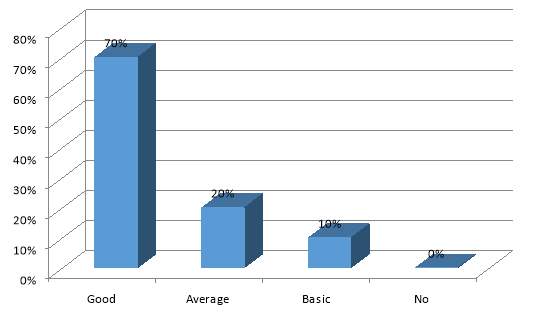
Figure 1. Knowledge of oil spill.
Additionally, the survey went further to find out how many respondents have experienced or witnessed oil spill incident. The outcome of this particular question was shocking as all respondents (100%) indicated that they have experienced oil spill occurrence. The interviews confirmed this as normal to the inhabitants in the region. This is because most of the pipelines for transporting extracted crude oil are suited along residential areas or beside the roads that can be easily sighted by people. As such it is easy for one to see oil spill occurring when incidents such as pipeline leakage occurs.

Figure 2. Experience of oil spill incident
Number of Oil spill
This section seeks to identify the amount and then the rate of oil spill occurrence in the Nigger delta region.
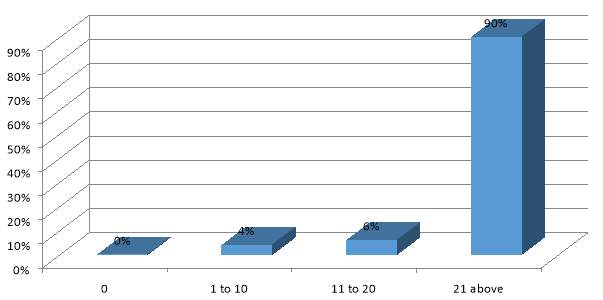
Figure 3.Number of oil spill occurrence
From the graph above 4% of the respondents indicated they have experienced 1 to 10 incidents since their stay in the Niger delta region, 6% indicated that they have experienced about 11 to 20 oil spill incidents in their period in the Niger delta region while an enormous percentage of 90% indicated that they have experienced above 21 oil spill incidents since their stay in the Niger delta. These results from the questionnaire survey can be verified from a data obtained from the Department of Petroleum Resources of Nigeria as can be seen below in (Figure 4) indicating the amount of oil spill occurrence in the Niger delta region in a particular period from 1997 to 2013. The data shows that oil spill incidents in the region exceed 100 incidents in a particular year since 1997 to 2013. The outcome corresponds with finding in this research as respondents noted that oil spill incidents are enormous from the survey. The interview section also obtained same finding as the interviewees concluded that the rate of oil spill incidents in the region can be classified as high.

This enormous occurring event of oil spill over the years is of great concern. Generally from this section, it means majority of the inhabitants have sufficient knowledge of oil spill occurrence in the Niger delta region of Nigeria. From the field survey, the interviewed participants admitted that majority of the inhabitants of the Niger delta region of Nigeria have knowledge of oil spill as many of them have experienced the occurrences.
Causes of Oil Spill
As noted in the literature, there are eight major causes of oil spill (). The research on this note seeks to identify the cause of oil spill in the Niger delta region especially regarding the amount and rate of oil spill occurrence in the region as gathered from the previous section.
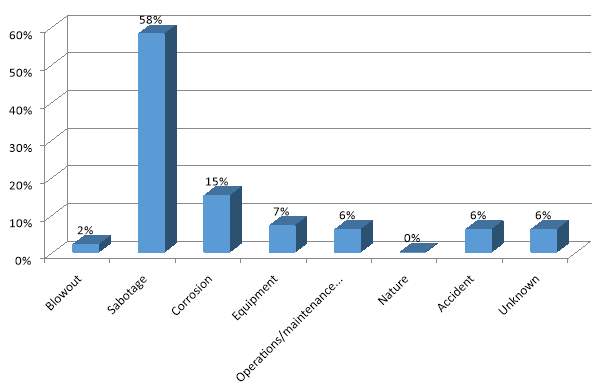
From Figure 4above, it was gathered that the major cause of oil spill in the Niger delta region is the act of pipe sabotage. 58% of the respondents attributed the major cause of oil spill incident to Sabotage on a scale of 1 to 8 where 1 is the least cause of oil spill incident and 8 is the highest cause of oil spill incident in the region. The result also agreed with the literature as Egbe and Thompson (2010) grouped sabotage as one of the causes of oil spillage in Nigeria oil producing area. The result from the respondents also coincides with the data obtained from the Department of Petroleum Resources of Nigeria (2014) showing the causes of oil spillage from 2011 to 2013 (see in APPENDIX F). Sabotage was identified to be the major cause of oil spill incident in the region.
Factors responsible for the cause of oil spill
As gathered from the literature, the causes of oil spill are due to several reasons as such the survey seeks to identify the reasons for control where possible. The question for this section was grouped into 7 subjects to identify the reason or factors responsible for the cause of oil spill in the Niger delta region.
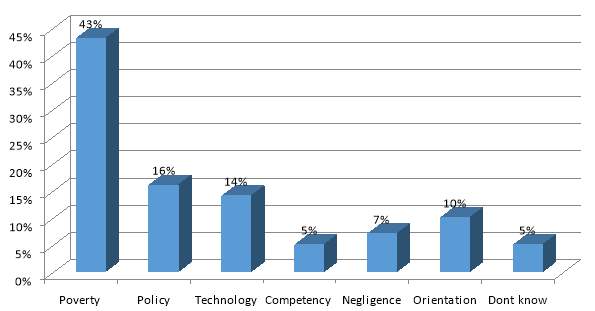
Figure 6. Factors responsible for oil spill
From figure 6, the research gathered poverty to be the major factor responsible for the cause of oil spill. 45% of the respondents of the region inhabitants attributed the cause of oil spill to poverty while 16% and 14% of the respondents respectively indicated policy and technology as responsible factors leading to the cause of oil spillage. 4% of the respondents indicated competency in terms of personnel to conduct oil and gas operations in the area, while 5% indicated Negligence by responsible parties of the oil and gas sector in the region, and 10% attributed the cause to Orientation of people. From the interview section, Poverty was also gathered as the leading factor responsible for oil spill.
This is due to destruction of farmland and water by oil which majority of the inhabitant rely on for their livelihood such as farming, fishing and other form of businesses. This is also in accordance with the literature as highlighted by Worgu (200) that oil spill ultimately affects land fertility. When pollution of farm land and water occurs in such region, the inhabitants have little or no means of income which then results to other means of survival such as sabotage of pipes to extort and sell oil for income or to get back parties involved in oil and gas operation in the area.
Impact of oil spill
As detailed in the literature, oil spill cause pollution to the environment in several ways such as contamination of water or land pollution and can also lead to illness due to its chemical composition. This section of the questionnaire seeks to find out the impact of oil spill in the region, how it affects the inhabitants of the region and to what degree.
Amount of Inhabitants affected by oil spill
From the survey as detailed below in figure 7, all respondents indicated that they have been affected by oil spill. This goes to mean that majority of the region inhabitants feels the consequence of oil spill in the region.
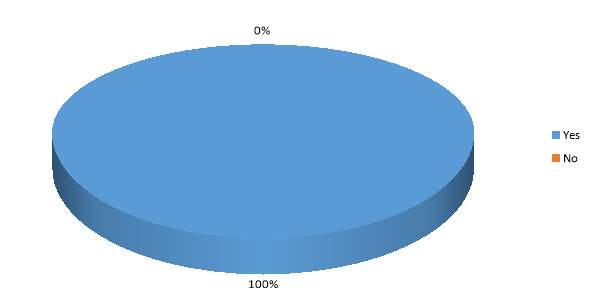
Figure 7. Amount of inhabitants affected by oil spill
As seen from Figure 7, the survey went further ahead to find out if the region has been affected in one way or the other by oil spillage.100% of the respondents indicated that there have been in one way or the other affected by oil spillage incident.
Main areas affected by oil spill
As gathered from the above sub-section in figure 7, all respondents indicated to they felt the consequence of oil spill. The survey then went further to find out what has been affected mainly in the area and life of the inhabitants. The outcome is detailed in the graph below (see figure 8)
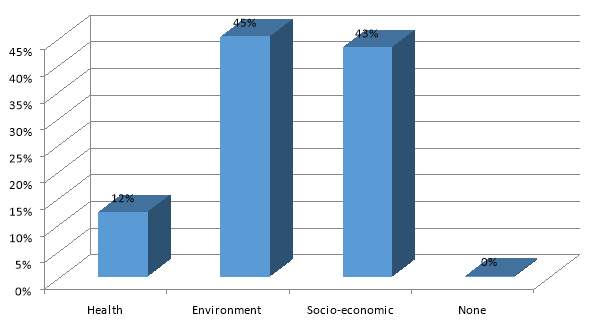
Figure 8. Main areas affected by oil spill
From Figure 8, majority of the respondents indicated that the environment has been mainly affected. This is obvious as majority of the habitants in the Niger delta region are farmers and fishermen. More so this is evident in the literature review where Badejo and Nwilo stated 48% of the occupation in the Niger delta is agriculture and fishing, this in turn affects the economy of the region. Businesses like restaurants and hotels face decline in profits as oil spill incidents leads to low turn up of tourists. This is due to the pollution of the beaches and reserves from the oil spill. This coincides with the literature research from ITOPE (2009), which noted that oil spill pollution of land and water leads to interference and loss of recreational activities such as diving and sporting events. Businesses that make use of the rivers and sea for their normal operations can also be adversely affected by the oil spill. Health of the inhabitants was also indicated as been affected by oil spill but not as the major concern as discovered by this research.
Degree of oil spill impact
From this question it was identified that majority of the oil spill incident in the region are high oil spill incidents. 95% of the respondents rated the impact of the oil spill incidents in the region as high while only 5% rated it as low but none indicated the impacts as low experienced as low impact. These rates can be associated with the amount of barrels of the oil spilled into the environment when the occurrence takes place.
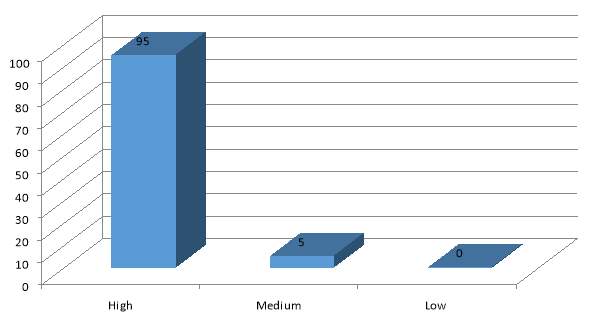
Figure 9.Degree of oil spill impact
These results gathered from the questionnaire agreed with the interview section as majority of the interviewee noted that not only is oil spill high in terms of the quantity of oil barrels spilled into the environment but the rate of occurrence is also alarming. This section corresponds with data obtained from the Department of Petroleum Resources of Nigeria (see below in Figure10) indicating the rate of oil spill incidents and barrels of oil spilled in a particular year in the region which is identified as high going by the classification of oil spill incident. 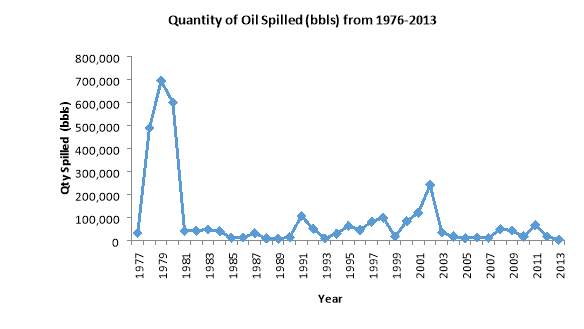
Figure 10. Quantity of oil spilled
Duration of oil spill impact
Oil spill impact can be quite devastating to the environment, economy and health of persons in a particular region. In this section, the research seeks to find out the duration of the oil spill impacts to the Niger delta region for management improvements. From the survey, it was gathered from majority of respondents that the consequence of oil spill incidents in the region can take above six months in most occasion before controlled while only 1% indicated it takes between three (3) to six (6) months to stop or control oil spill impacts and none indicated less than 3 months.
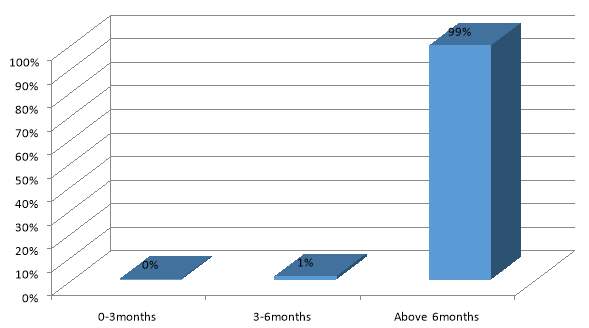
Figure 11. Duration of oil spill impact
From this section, it can generally be seen that majority of the respondents have been affected by the impacts of oil spill and these impacts can be rated high due to the quantity of barrels spilled and rate of oil spill incidents and even more the duration it takes to control majority of incident/impact. The oil spill incident has affected the environment, socio-economy and health of person residents in the region, but has mainly affected the regions environment.
Management of oil spill
In this section, the research took a different approach to find out the perception of the respondents towards the management of oil spill in the region in order to close gaps for improvement of the management of oil spill in the region.
Control of oil spill
This question seeks to identify how serious the responsible oil and gas-operating parties take the management of oil spill. From the questionnaire survey, the perception of the inhabitants of the region is that the responsible party are not doing enough to address the matter of oil spill. An overwhelming majority of the respondents (96%) indicated that enough is not being done to manage oil spill in the region while only 4% indicate that the management of oil spill in the region as average. From the interview section, similar outcome was gathered as management of oil spill was perceived low in the region while also noting that so much more needs to be done regarding oil spill management in the Niger delta region.
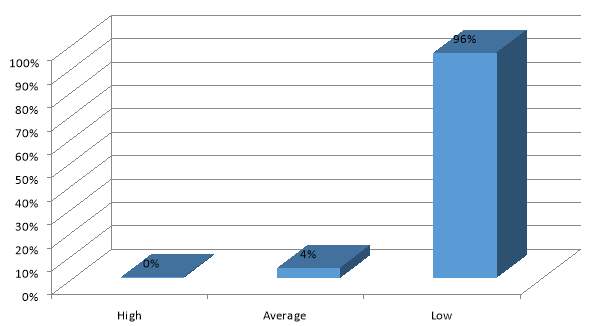
Figure 12.Control of oil spill
Approach towards oil spill
The management of oil spill can be proactive or reactive. While proactive management of oil spill are measure taken to prevent oil spill occurrence, reactive management are control measures to respond to oil spill occurrence. Hence the research took a step to identify which approach is practiced mainly in management of oil spill in Nigeria through the inhabitants of the region. From the gathered results, it was discovered that the reactive approach is practiced more than the proactive as 2% out of all respondents indicated that the responsible parties are more proactive to the situation of oil spill than reactive while 98% indicated the responsible parties are more reactive.
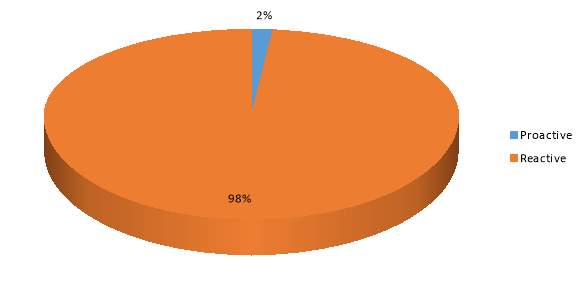
Figure 13. Approach towards oil spill
Same outcome was also gathered from the interview as one of the interviewee stated that although there are existing management systems in place, the responsible parties are more reactive in terms of tackling oil spill incidence that proactive.
Prevention and response to oil spill
To verify the outcome of the management approach mainly adopted for oil spill in the Niger delta region, a question was put through to find out the amount of oil spill any of the respondents could recall that have been prevented. From the results, 94% of the respondents indicated that of all oil spill incidents they have experienced, non have been prevented while 4% indicated that of all experienced oil spill incident that one has been prevent and 2% of the respondents indicated that they can recall 2 oil spill incident prevented but none indicated 3 prevented oil spill incidents as can be seen in figure 14 below;
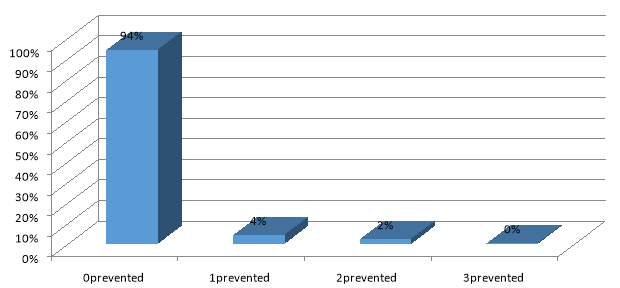
Figure 14. Prevented oil spill
For the response of oil spill, a different approach was taken to discover the response to oil spill incident from the inhabitants participating in the survey. The outcome showed that despite the responsive approach adopted for oil spill incidents, majority of the incidents take so long to address. From the questionnaire it 2% indicated of knowing about oil spills that have been controlled in 1 to 7days, 4% indicated of controlled oil spill incidents in 7 to 14days but a majority of the respondents indicated that most of the spills take more than 2 weeks to be addressed (see figure 15 below). This is in accordance with the interview section of this research survey as the interviewees noted that most of the oil spill incidents in the region take months or years to address. However, it was interesting to discover some challenges responsible for the management standard of oil spill in this region. The interviewees have noted in addition to the time taken to respond to oil spill incident that some of the factors responsible for these response delay are due to resistance from the inhabitants of the region when repair or clean up is to take place while another major challenge is the swampy terrain.
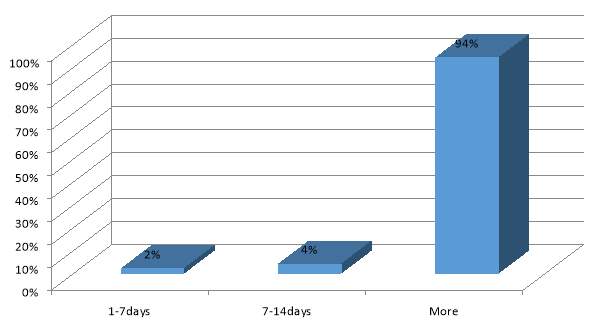
Figure 15. Response to oil spill incident
Social responsibility
According to Smith 2003, social responsibility is a vital tool and an obligation of an organisation to the society or stakeholders (those affected by the organisation’s policies and practices). This covers responsibility such as protecting the society or environment of the company operations. However, from the survey, it was identified that most of the region inhabitants are not being compensated due to damages caused by the oil spill. 90% out of the total respondents indicated that they have not received any form of compensation from the responsible parties involved in oil and gas activities in the area due to damage of the environment from the oil spill incidents emanating from the activity while 10% admitted to have been compensated for the damage
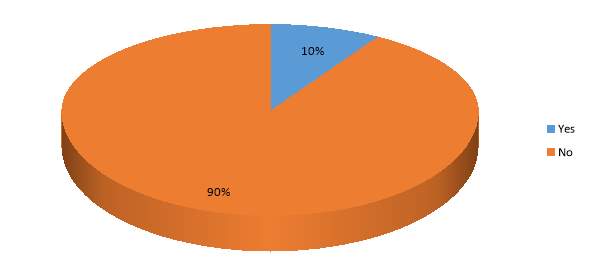
Figure 16. Compensation for oil spill impact
This was supported by the interviewee section, however with more detail regarding the results obtained about the subject in the questionnaire. From the interview section, it was gathered that most compensation are in funds for the inhabitants affected through authorities in the localities. But in most situations, the funds do not get across to the affected person or it is inadequate or insufficient for the amount affected or damaged caused.
Oil spill control performance
In general to find out how the management of oil spilled is being practiced, response was gathered from the regarding the performance of managing oil spill incident in the region. From the outcome of the survey by the respondents, 90% rated the performance of managing oil spill incidents in the Niger delta region as poor while 10% rated it as average and no rating was received for high (see figure 17 below).
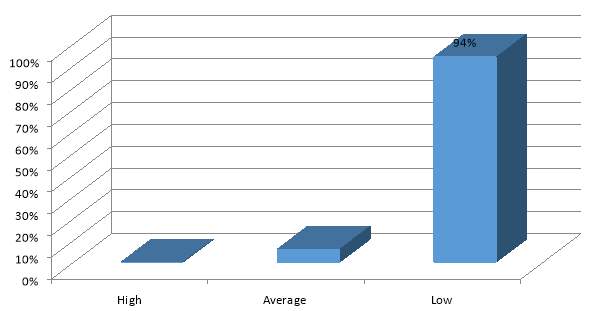
Figure 17. Oil spill control performance
This outcome is an agreement with the interview section with the interviewees suggesting that the management of oil spill incident in the Niger delta region is poor. However, they attributed the poor performance to terrain and violence they encounter from the habitants and in some occasion illegitimate tax they are asked to pay before an oil spill clean up or prevention activity. It was also gathered from the interview that many environmental agencies exist leading up to misappropriation of funds and in turn poor management of oil spill in the Niger delta region of Nigeria.
Summary
From the results, it can be seen that the issue of oil spill management in the Niger delta region of Nigeria is poor. From the outcomes of the questionnaire survey, interview and data obtained from responsible party, the highlights of the findings regarding the oil spill issue in the Niger delta region are:
- Causes of oil spill in the Niger delta region: the major cause of oil spill in the Niger delta region is sabotage and the responsible factor can be attributed to poverty.
- Impact of oil spill in the Niger delta region: The impact of oil spill in the Niger delta region is so devastating and the main area that has been affected is the environment (farm land, and water) which is the main source of income as majority of the inhabitants of the region are farmers
- Management of oil spill in the Niger delta region: The management of oil spill in the Niger delta region was identified as poor but due to challenges such as terrain, misappropriation of funds, too many agencies, policy and even more the violence towards the responsible parties to control incidents in event of oil spill.
A positive aspect of this research finding is the fact that all participants in this survey are habitants in the Niger delta region and have knowledge of oil spillage. This signifies that they have understanding of the subject matter in responding to the question. Another impressive aspect from the survey is the detail obtained from the interview section. The interview part of the survey has been quite revealing and informative. It provided in-depth details of the challenges confronting the management of oil spill, the causes and impacts of oil spill incidents in the Niger delta region of Nigeria. These have been very helpful in achieving the aim and objectives of this research work. The implication of all findings in this research considering the rate of oil spill incidents, the adverse impact and the management challenges of oil spillage in the Niger delta region is troubling. Based on these findings, conclusion and recommendation for this research are made.
CONCLUSION AND RECOMMENDATION
Conclusion
Oil spillage has had a major negative impact on the citizens of Nigeria, and the economy as a whole. An illustration of this can be seen in the friction caused between the oil producing/servicing companies and resident communities resulting in frustrations, finger pointing, clashes, general resentment and mistrust. Management and control of spills have been handled poorly and this has directly contributed to an escalation of the negative impacts on all involved. Central to the poor state of affairs are the largely obsolete laws and regulations in the Nigerian oil industry which have been outpaced by the prevailing technology for crude oil development and use. There is therefore an urgent need to review the existing oil industry laws and create new ones. The new laws to be promulgated must be relevant to the current state of affairs and strictly enforced to deal with every aspect of the industry, and very importantly, oil spillage.
The cause of oil spill can lead to very disastrous situation as such should be treated as national emergency by the Nigerian government whenever it occurs. Not just because this is the case in other oil producing zones of the world but because it is the responsible thing to do. The government needs to provide effective capacity building at all levels by acquiring basic oil spill response assets and equipment, in addition to recruiting trained personnel to manage and control oil spills. At the moment, the Nigerian oil industry is to a large extent dependent on foreign experts, international oil companies and other foreign organizations for spill management. This approach cannot add local content value with regards to the development and transfer of relevant technology and only degrades the country’s ability to promptly and effectively deal with oil spills. Well-developed spill management must involve expanded local knowledge of spills and a clear national spill contingency plan, provision of trained personnel and massive investment in response/clean up assets, equipment and technology.
Effective public and private sector partnership is crucial to deal with the occurrence of oil spills in Nigeria with the government playing a major role. The private companies cannot be left out and so far have not demonstrated commendable corporate social responsibilities in either their operations or their relationship with host communities regarding the effects of their activities on the environment. Decades of operations in Nigeria Niger Delta oil producing areas have not translated into necessary development of the operating communities and several grievances exist between involved parties. With regards to oil spills, the offending companies have a responsibility to ensure that oil spills are cleaned up within the little window of opportunity. Companies must be held accountable for their actions and host communities cannot continue to be taken for granted.
The Nigerian government have for their reference several oil spillage cases that were handled appropriately and with the best interests of the citizens in mind. Classical examples are the Exxon Valdez Oil Spill and BP Deep water Horizon oil spill disasters both of which have given insights on how to deal with spills of enormous magnitudes. At the peak of the EVOS crisis, the United States government provided response of 11,000 personnel, 85 aircrafts, and 1,400 vessels for cleanup operations. Within 3 weeks of the BP Deep water Horizon Oil Spill, it provided 520 vessels and other equipment and personnel to contain and stem the spill. Exxon Mobil within 3 years of the crisis spent over $2billion and in the BP deep Horizon case, $32billion was set aside for cleanup and compensation. Nigeria should copy compensation processes of the United States with regard to EVOS and Deep-water Horizon experiences.
Recommendations
Based on the research findings, the following recommendations encompassing the government, oil companies and the public are hereby rendered:
- The public or inhabitants (Farmers, Traders, women groups, school children and the youths) of the Niger delta should be enlightened on the negative effects of pipeline sabotage on the environment and the issues of health and safety hazards of oil when it spills by communicating with them through various seminars, conferences and workshops and engaging them in security and surveillance activities and duties.
- Adequate technologies for oil spill should be embraced without delay by oil operators in the Niger Delta region and the Nigerian government, and also resources should be put into the rehabilitation of infrastructure/facilities used in oil production. Responsive measures such as bioremediation should be maintained and encouraged however proactive measures of managing oil spill such as using technology should be imbibed to prevent oil spill incidents, (for example, Pipes with high resistance to corrosion, pipe leak detective gadgets, etc.)
- Training of personnel for oil spill management should be improved to meet up to modern approaches. The Nigerian government should continuously employ and train personnel at all levels for oil spill emergencies. Additionally the Department of Petroleum Resources responsible for petroleum activities should be properly and adequately staffed so as to be able to play its inspectorate and enforcement role to achieve the competency standard for oil spill management.
- The oil organization should have free emergency national numbers in place this way the habitants in the region can call when there is an event of an oil spill and also when any individual is seen digging a pipeline route, These calls are very important as they play a role to aid fasten emergency response and also help avoid bursting or breaking of pipelines arising from digging.
- The emergency responses procedures should be designed to swiftly take measures to protect the safety of the public, employees and the environment. The various environmental agencies in Nigeria should be reduced and given a clearer regulation and objectives in order to manage oil spill events and cleanup more quickly and effectively. There should be in charge of oil spill clean up while the oil organization (polluter) should play a secondary role by drawing resources for the clean up. Additionally the government and the oil organizations should incorporate the fire services, air marshals and the police into the emergency response plan, and regional spill response centers should be created along coastlines, this will help in overseeing oil spill problems.
- Without delay the Nigerian Government should implement effective national oil spill contingency plan at State and Federal levels for effective control of oil spill incidents in the Niger delta region. The oil spill contingency plan should take into consideration, the nature of the terrain in the Niger delta region to carry out the plans.
- Stiff penalty should be provided in the new petroleum industry legislation for saboteurs and polluter. Oil spill incidents should prompt Fines, penalties, and payment of compensation due at all times and should be set out for the operators and inhabitants of the Niger delta region.
- The Nigerian government must be proactive in both regards to control of oil pollution, management and biodiversity conservation by enforcing existing regulation, laws and policies in place, this can be achieved by enormous political support – the determination to enforce the regulations and strengthening the judiciary system especially in oil spill related cases.
The implementation of the following recommendation will bring about the following benefits to the management of oil spill in the Niger delta region; reduction of causes of oil spill in the region which results mainly from sabotage based on factors such as poverty due to loss of jobs, saving the environment on time from spilled oil when it occurs as a result reducing the impact to the inhabitants of the region and most importantly enabling proper management of oil spill in the Niger delta region such as being proactive to prevent oil spill or responding to it as the case may be, saving cost as agencies are reduced and allowing sufficient compensation to affected inhabitants, responsible parties will in turn gain good reputation and in all the Improvement of economy around the region and Nigeria as a whole
Further research
Due to certain limitation in the course of this research work, further research is needed to deal with some of the issues that will aid in addressing the challenges confronted by the responsible parties in managing oil spillage in the Niger delta region. The future research concerning oil spill in the Niger delta region of Nigeria should consider addressing the following;
- The challenges of managing oil spill in difficult terrain in the Niger delta region of Nigeria.
- The challenges of oil pipe corrosion by using new advance technology in the Niger Delta region.
Research in this areas will address some of the potential challenges in the near future as oil exploration activities expands with the increasing demand of energy across the country and around the world.
Reflective Analysis
Moon, (1999) stated that we reflect in order to: consider the process of our own learning and improvement; make decisions and resolve issues. Hence, reflecting on and learning from personal experiences and mistakes during this research process, can help the researcher avoid repeated mistakes and, at the same time, identify successful aspects of experiences and useful principles which might usefully be applied in other or similar situation.
For the research, the Niger delta region of Nigeria was chosen as the case study because the researcher has worked in an organisation in the area. During the time of employment, the researcher became familiar with lots of issues concerning the management of oil spill in the region. And most these have resulted to the high rate of oil spill incidents occurrence in the Niger delta region.
Due to this personal experience the researcher was able to establish good relationship with the affected and responsible parties in this region; this enabled the researcher to acquire the information and materials needed to accomplish the research.
However, executing this research was not problem-free for the researcher. The researcher encountered various challenges particularly during the field survey (interview). The researcher encountered challenges when interviewing some of the participants on the subject of the research due to language barrier. This is due to diverse tribe and nationality of inhabitants and workers in the oil producing Niger delta region of Nigeria. What would be done differently next time would be to provide the various tribes and nationalities with a translated copy of the question for their different languages to obtain a more satisfying result without any doubt as to lack of understanding by the participant unless he/she is proficient in the use of English.
As Gibbs (1998) reported, the feeling and thought that emerge from reflection allow generalisation, which allow new situations to be tackled effectively. The researcher is very much convinced that this research will benefit all responsible parties in oil and gas activity in the Niger delta region (Region inhabitants, companies and government) if implemented.
REFERENCES AND BIBLOGRAPHY
References
Adelana,S.O, Adeosun,T.A, Adesina,A.O and Ojuroye,M.O. (2011): Environmental Pollution and remediation: Challenges and management of oil spillage in the Niger coastal areas. America journal of Scientific and Industrial Research, 2 (6), pp. 834-845.
Amaratunga, D. Baldry,D.Sarshar,M. and Newton.R. (2002). Quantitative anf Qualitattive Reasearch in the Built Environment: Application of Mixed Research Approach. Journal of Work Study, 51(1), pp. 17-31.
International, A., 2008. Nigeria petroleum pollution and poverty in the Niger Delta, united kingdom: Amnesty International publication.
Badejo, O. T and Nwilo. P .C (2008): Impacts and management of Oil Spill Pollution along the Nigeria Coastal Areas.
Available at https://www.fig.net/pub/figpub/pub36/chapters/chapter_8.pdf.
Badejo, O. T and Nwilo, P. C (2009): Management of oil spill dispersal along the Niger delta region. Available at http://www.isprs.org/proceedings/xxxv/congress/comm7/papers/241.pdf.
Blaikie, N.,( 2000) Designing Social Research: The Logic of Anticipation. London: John Wiley and Sons Inc.
Collis, J. and Hussey, R., (2009) Business research: a practical guide for undergraduate and postgraduate students. 3rd ed. Basingstoke: Palgrave Macmillan. 358p. ISBN 781403992475
Cone, 1991. Fatal injuries at work in california. journal of occupational medicine, 33(7), pp. 813-817.
Davies.M.B, 2007. Doing Successful Research Project. In: Using qualitative or quantitative methods. london: palgrave macmillian.
Department of petroleum resources, (2014) Oil spill data.
Dennis R 2009: What is migration. Publisher: Tear fund international
Available online: http://tilz.tearfund.org/Publications/Footsteps+71-80/Footsteps+78/What+is+migration.htm
Egwu S A (2012): Oil spill Control and Management. Petroleum Technology Development Journal (1), pp. 1595-9104.
Eldabi,T, Paul,R.J, Taylor,S.J (2002). Integrated approached to health informatics research and development. Logistics Information Management, 15(2) 138-152.
Gbadegesin.A, (1997). Impact ofoil exploration and production activities on the environment: implications for peasant agriculture. A seminar paper on oil and the environment organized by Friendrick Eibert Foundation Port harcourt, pp. 9-14.
Hassan, C., Olawoye, J. and Nnadozie, K. 2002. Impact of International Trade and Multinational Cooperation on the Environmental and Sustainable Livelihood of Rural Women in Akwa Ibom State, Niger Delta Region Nigeria. Available:http:depot.gdnet.org:666/cms/conference/papers/4th_prl5.5.3_Comfort_hassan_paper .pdf
Hines, P., Taylor, D., (2000), Going Lean, Lean Enterprise Research Centre, Cardiff, pp.3-43.
Ifeadi, C. N. and Nwankwo, J.N. (1987). “Critical Analysis of Oil Spill Incidents in the Nigeria Petroleum Industry”. Proceedings of the 1987 International Seminar on Petroleum Industry and the Nigerian Environment Oweri, Nigeria: pp104-114.
Islam M and Tnaka M (2004): Impacts of pollution on coastal and marine ecosystems.
Available online:
http://teaching.ust.hk/~bisc529/HK/MPP2004v48n7-8p624-649%20islam%26tanaka.pdf
Kumar. R (2005): Research Methodology; A step by step guide for beginners
Sage publication, London Chp.12pp174-175.
Mackey, A. and Gass, S.M. (2005), “Second Language Research: Methodology and Design” Routledge
Mokrousov, S. (2014) Safety measures for transmission pipeline transport of natural gas and hazardous liquids in the Russian federation. Available at www.unece.org/fileadmin/DAM/env/teia/water/pipeline/end-ve-mokrousov-ppt.pdf
Ntukekpo (1996): Spillage: bane of petroleum, ultimate water technology environment
Nwilo.P. and Badejo.O. (2005): Oil spill problems and management in the Niger delta. International Oil spill conference, Miami, Florida, USA
OECD (1976): Managing the Environment: The Role of Economic Instruments. Paris: OECD, p 191.
Ojakorotu V and Gilbert L (2010): Checkmating the resurgence of Oil Violence in the Niger delta of Nigeria.
Olagoke w (1996): Niger delta environmental survey: which way forward.
Orlikowski, W. J. and Baroudi, J. J. (1991) Studying Information Technology in
Organizations: Research Approaches and Assumptions. Information Systems Research. (2)
1-28.
Owabukeruyele, W.S. 2009. Hydrocarbon Exploitation, Environmental Degradation and Poverty in the Niger Delta Region of Nigeria. Lund University. Sweden. [January 30, 2000]. [Online] Available: mhtml: file//E: oil spill information for literature review.mht.
Ozekhome (2011): Legislation for growth in the Niger delta region. Midweek Pioneer
Park, J.M and Holliday, M.G. 1999. Occupational Health Aspect of Marine oil-spill Response. Ottawa, Ontario. Canada. 71(1) 113-133.
Smith NC (2003): Corporate Social Responsibility: Whether or How? California Management Review 45(4): 52-76.
Stanley, W.R. 1990. “Socio-economic impact of oil in Nigeria”. Geography Journal, 1990. 22 (1) 67-79.ss
Stepping Stone Nigeria. 2009. “The impact of the oil industry”. Lancaster. [Online] Available: http://www.steppingstonesnigeria.org
Strauss, A. And Corbin, J. (1990) “Basics of Qualitative Research: Grounded Theory and Procedures and Techniques”, Newbury Park CA: SAGE Publication Inc.
Saunders, M., Lewis, P. and Thornhill, A. (2000): Research Methods for Business Students. 2nd Ed. Harlow: Pearson Education Limited.
U.S Environmental protection agency 2004: Analysis of oil spill trends in the United States and Worldwide (2004) Available online: http://www.fas.org/sgp/crs/misc/RL33705.pdf
Worgu, S.O. 2000. Hydrocarbon Exploitation, Environmental Degradation and Poverty in the Niger Delta Region of Nigeria. Lund University Lumes Program, Lund, Sweden.
Wisker G, (2008), The Postgraduate Research Handbook, 2nd Edition, London: Palgrave Macmillan.
Yin, K (1994) Case study Research: Design and Methods, Newbury Park, CA.
Bibliography
Akpofure, E.A., Efere, M.L. and Ayawei, P. (2000) The Adverse Effects of Crude
Oil Spills in the Niger Delta. Urhobo Historical Society
Imoobe, T.O.T and Iroro, T. (2009) Ecological restoration of oil spill sites in the Niger delta, Nigeria. Journal of sustainable development in Nigeria. 11(2) 1520-5509.
Cowell, E.B (1971) Ecological effects of marine oil pollution, London; Institute of petroleum.
Smith, L.A and Loza, L. (1994) Texas Turn to GIS for oil spill management. Geo info system. Pg 48.
Department of petroleum resources (2014) The 14th international HSE biennial oil and gas industry in Nigeria.
Bukola Sakari, (2012) “Oil spills in the Niger delta: The way forward”
Eweje, Gabriel, (2006) Environment costs and responsibilities resulting from Oil exploitation in developing countries: The case of the Niger Delta of Nigeria. Journal of Business Ethnic, volume 69 27-56.
Aprioku,I.M, (2003) Oil-spill Disasters and The Rural Hazardscape of Eastern Nigeria. Geoforum. 34 (1) pp. 99-112.
Neuparth,T. et all, (2012) Review of Oil and NHS Accidental Spills in Europe: Identifying Major Environmental Monitoring Gaps and Drawing Priorities. Marine Pollution Bulletin. 64 (6) 1085-1095.
Inoni, O.E et all (2006) The Effect of Oil Spillage on Crop Yield and Farm Income in Delta State, Nigeria. Journal of Central European agriculture, 7(1) 44-48.
APPENDICES
APPENDIX A: Questionnaire
SECTION 1: ABOUT YOU (Please tick all that apply to you)
1. Are you? Female [ ] Male [ ]
2. Age? 18-25 [ ] 26-35 [ ] 36-45 [ ] 46+ [ ]
3. Do you reside in the Niger delta region? Yes [ ] No [ ]
If Yes- How long? 2– 3yrs [ ], 3–4yrs [ ], 4+ yrs [ ]
4. Which of the option best describes your job type? –(Please tick all that applies to you)
Fishing/Faming [ ] Trading/ Business [ ] Wage-earner [ ] other…………………
5. What is your work status? Permanent [ ] Temporarily [ ] Unemployed [ ]
6. Education Qualification? Primary [ ] Secondary [ ] Tertiary [ ] Others……………………
SECTION 2: AWARENESS (Please tick only the box that most apply)
7. Do you have knowledge of oil spill? Good [ ] Average [ ] Basic [ ] No [ ]
8. Have you experienced an oil spill incident? Yes [ ] No [ ]
9. How many oil spill incident(s) can you recall since your stay in the Niger-delta region?
0 [ ] 1-10[ ] 11-20 [ ] 21above [ ]
SECTION 3: CAUSES OF OIL SPILL (Please tick only the box that most apply)
10. Which of these are the causes of oil spill in your area? Fixing numbers 1 to 8 in the boxes. Where 1 is the main cause and 8 is the least cause
Blow out [ ] Sabotage [ ] Corrosion [ ] Equipment malfunction [ ]
Operation/maintenance error [ ] Natural causes [ ] Accidents [ ] Unknown [ ]
11. What do you consider as responsible for the oil spill incidents? Fixing numbers 1 to 7 in the boxes. Where 1 is the main issue and 7 is the least issue
Poverty [ ] Policy [ ] Technology [ ] Competency [ ] Negligence [ ] Orientation [ ] Dont Know
SECTION 4: IMPACT OF OIL SPILL (Please tick only the box that most apply)
12. Have you been affected by oil spill incident? Yes [ ] No [ ]
13. In what way have oil spill incident affected you mainly?
Health (illness) [ ]
Environment (land or water pollution) [ ]
Socio-Economy (finance, style of living) [ ]
None [ ]
14. How would you rate the impacts of all the oil spill incidents you have experienced?
High [ ] Medium [ ] low [ ]
15. In the past 2 years, how long did the impact of the oil spill affect you?
0-3months [ ] 3-6months [ ] Above 6 months [ ]
SECTION 5: MANAGEMENT OF OIL SPILL (Please tick only the box that most apply)
16. How do you consider the responsible parties (Government, companies etc) as doing enough to stop oil spill incident?
High [ ] Average [ ] Low [ ]
17. How do you view the actions towards oil spillage? Proactive [ ] Reactive [ ]
18. How many prevented oil spill incidents can you recall?
0 [ ] 1 [ ] 2 [ ] 3 [ ] Enter number……………
19. Based on oil spill incidents you have witnessed, how long on average does it take to stop the spillage?
1-7 day [ ] 7-14 days [ ] More……………….
20. Have you been compensated for oil spill pollution? Yes [ ] No [ ]
21. How would you rate the performance of management of oil spill incident?
High [ ] Average [ ] Low [ ]
SECTION 6: COMMENTS
22. Please feel free to add any further comments
…………………………………………………………………………………………………………………………………………………………………………………………………………………………………………………………………………………………………………………………………………………………………………………………………………………………………………………………………………………………………………………………………………………………………………………………………………………………………………………………………………………………………………………………………………………………………………………………………………………………………………………………………………………………………………………………………………………………………………………………….
APPENDIX B: Interview Questions
- What do you know about oil spill?
- Who is responsible for the oil spill
- What is responsible for the oil spill incidents
- What is the priority management approach for oil spill between proactive and reactive approach
- What challenges are you experiencing in carrying out the approach?
- Are community members involved?
- Do they receive same training as the company workers?
- Do you view indigene involvement as a good option to reducing oil spill?
- How would you rate the management of oil spill
- Do you compensate the area for oil spill incident
- What approaches have you applied mostly in managing oil spill
- What would you do differently knowing the amount of oil spill over some years
APPENDIX C: Completed Questionnaire Sample
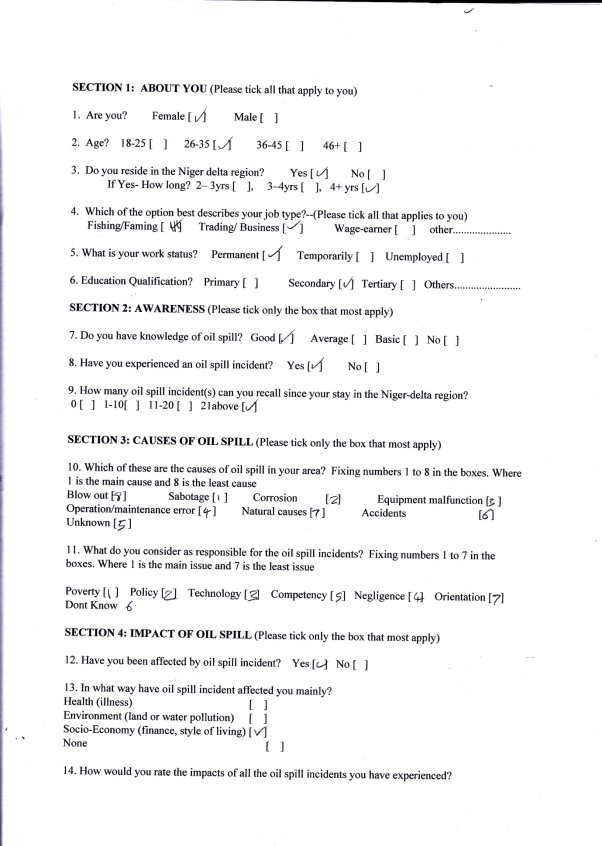
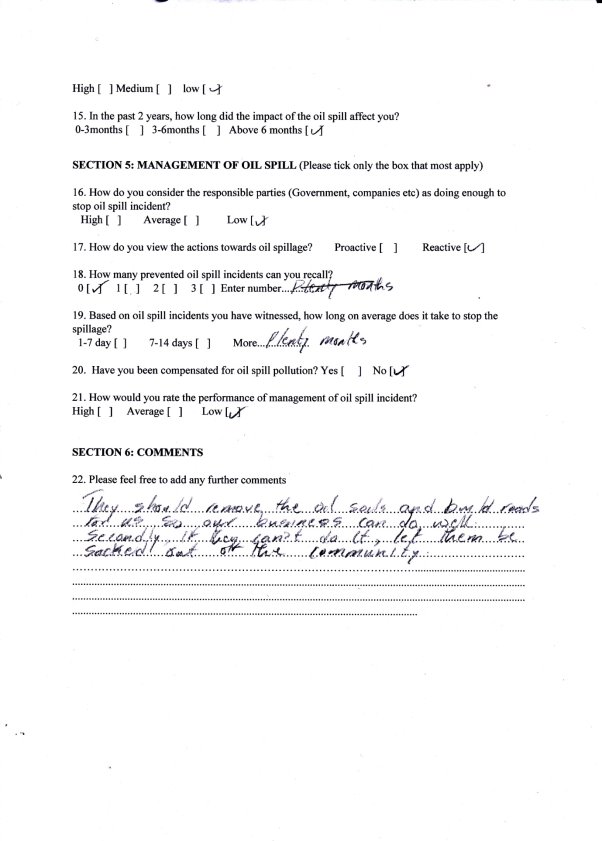
APPENDIX D: Completed Questionnaire Sample
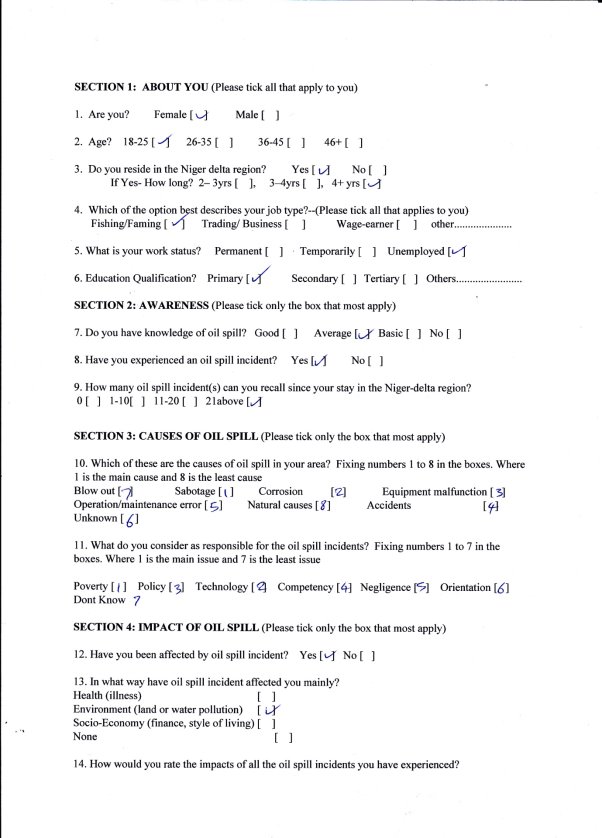
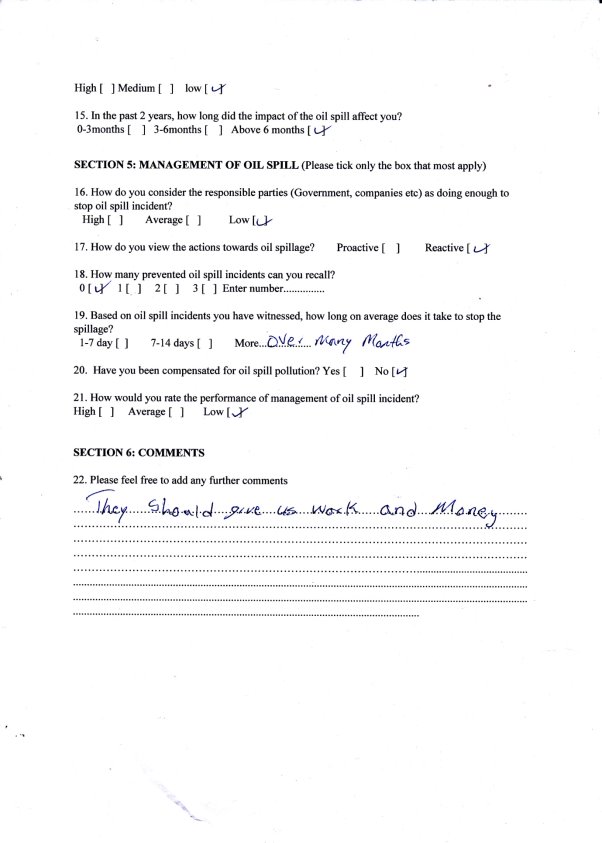
APPENDIX E: Completed Questionnaire Sample
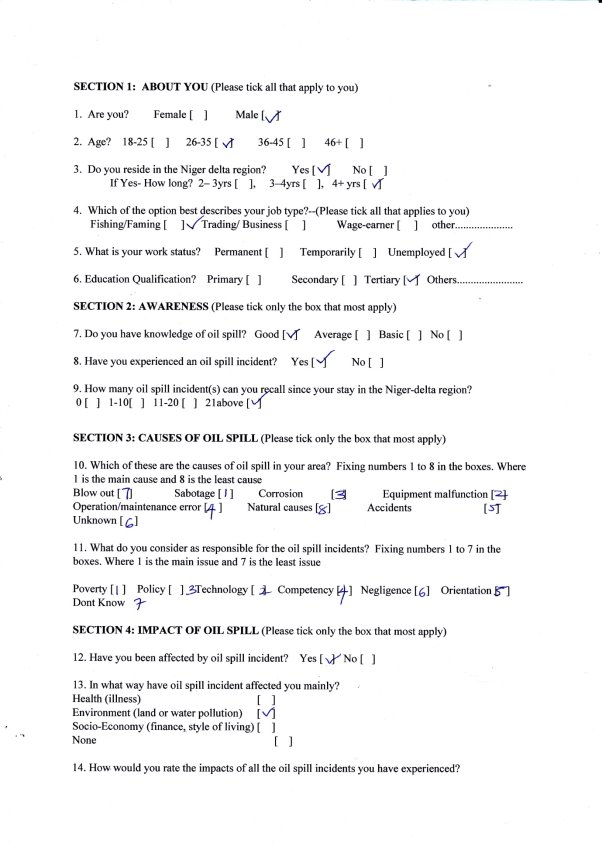
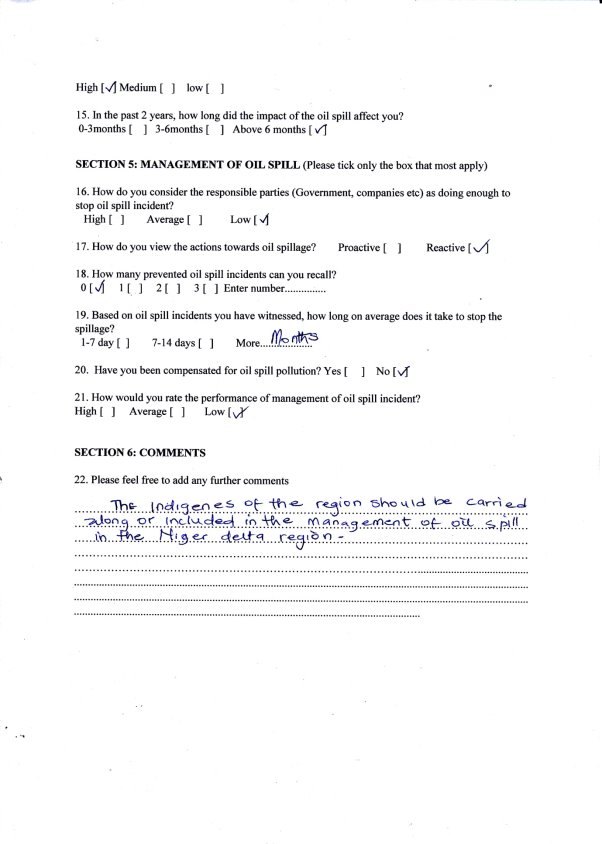
APPENDIX F: Causes of Oil Spill
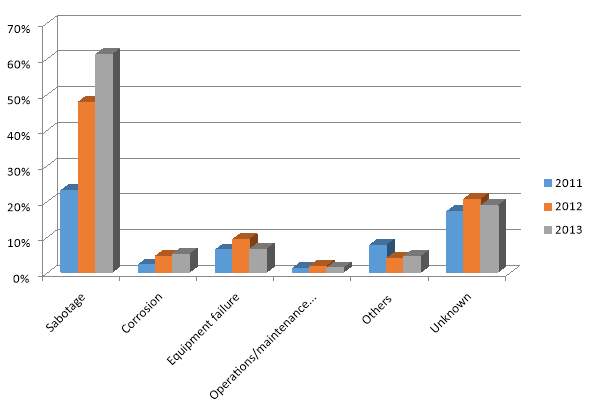
Source: (Department of petroleum resources, 2014)
APPENDIX G: A Table Showing the Yearly Spill From 1976 to 2013
| Yearly Spill Data- 1976 to 2013 | |||
| S/NO. | YEAR | NO. OF SPILLS | QTY SPILLED (BARRELS) |
| 1 | 1976 | 128 | 26157.00 |
| 2 | 1977 | 104 | 32879.00 |
| 3 | 1978 | 154 | 489294.00 |
| 4 | 1979 | 157 | 694170.00 |
| 5 | 1980 | 241 | 600511.00 |
| 6 | 1981 | 238 | 42722.00 |
| 7 | 1982 | 252 | 42841.00 |
| 8 | 1983 | 173 | 48351.30 |
| 9 | 1984 | 151 | 40209.00 |
| 10 | 1985 | 187 | 11876.60 |
| 11 | 1986 | 155 | 12905.00 |
| 12 | 1987 | 129 | 31866.00 |
| 13 | 1988 | 208 | 9172.00 |
| 14 | 1989 | 195 | 7628.16 |
| 15 | 1990 | 160 | 14940.82 |
| 16 | 1991 | 201 | 106827.98 |
| 17 | 1992 | 378 | 51187.96 |
| 18 | 1993 | 428 | 9752.22 |
| 19 | 1994 | 515 | 30282.67 |
| 20 | 1995 | 417 | 63677.17 |
| 21 | 1996 | 435 | 46353.12 |
| 22 | 1997 | 339 | 81727.85 |
| 23 | 1998 | 399 | 99885.35 |
| 24 | 1999 | 225 | 16903.96 |
| 25 | 2000 | 637 | 84071.91 |
| 26 | 2001 | 412 | 120976.16 |
| 27 | 2002 | 446 | 241617.55 |
| 28 | 2003 | 609 | 35284.43 |
| 29 | 2004 | 543 | 17104.00 |
| 30 | 2005 | 496 | 10734.59 |
| 31 | 2006 | 461 | 13772.92 |
| 32 | 2007 | 482 | 10848.00 |
| 33 | 2008 | 740 | 49524.80 |
| 34 | 2009 | 849 | 43648.82 |
| 35 | 2010 | 537 | 17658.10 |
| 36 | 2011 | 582 | 28210.95 |
| 37 | 2012 | 871 | 15552.18 |
| 38 | 2013 | 998 | 4,783.53 |
APPENDIX H: Oil Spill Effect on Mangroves

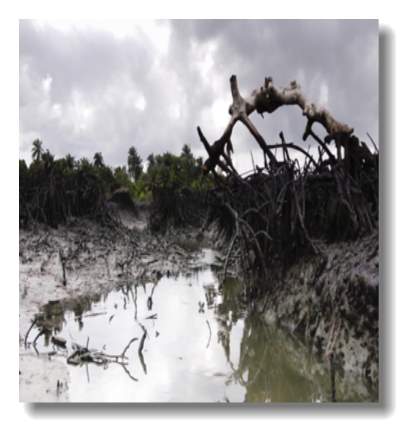
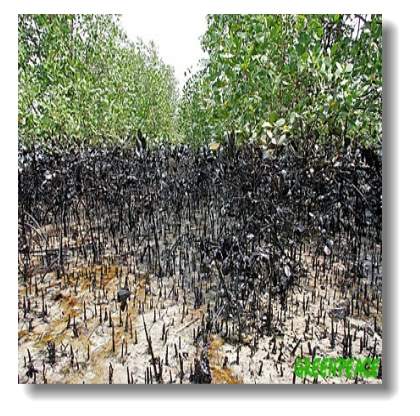
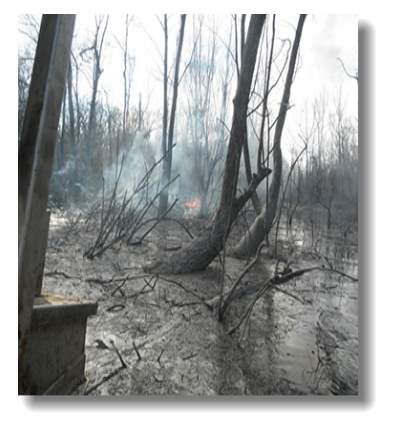
APPENDIX I: Loss of Potable and Industrial Water Resources
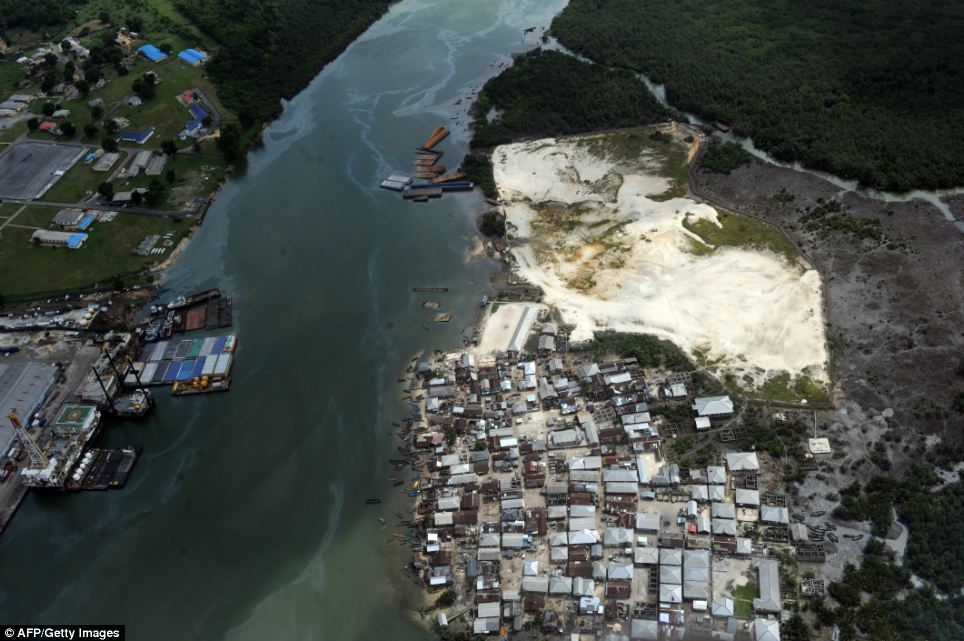
Source: (Chris Pleasance, 2013)
A river can be seen with fluorescent trickles of oil and by the side Precious Mangrove Destroyed and Blackened by oil spill.
APPENDIX J: Oil Spill Effect on Marine


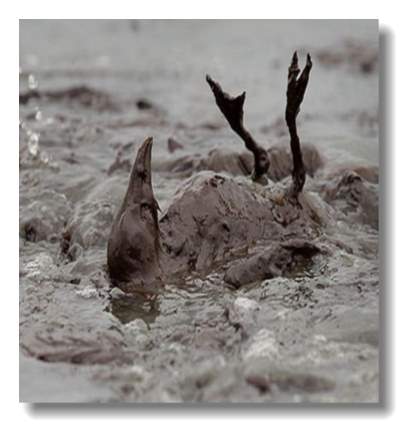
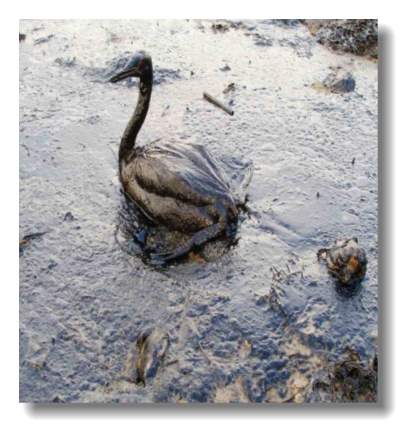
Cite This Work
To export a reference to this article please select a referencing stye below:
Related Services
View allRelated Content
All TagsContent relating to: "Management"
Management involves being responsible for directing others and making decisions on behalf of a company or organisation. Managers will have a number of resources at their disposal, of which they can use where they feel necessary to help people or a company to achieve their goals.
Related Articles
DMCA / Removal Request
If you are the original writer of this dissertation and no longer wish to have your work published on the UKDiss.com website then please:




